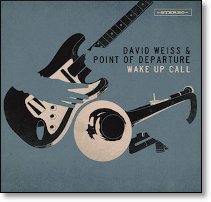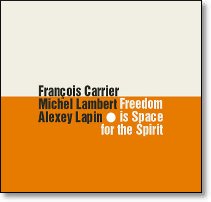Latest
2025
Jan
2024
Dec
Nov
Oct
Sep
Aug
Jul
Jun
May
Apr
Mar
Feb
Jan
2023
Dec
Nov
Oct
Sep
Aug
Jul
Jun
May
Apr
Mar
Feb
Jan
2022
Dec
Nov
Oct
Sep
Aug
Jul
Jun
May
Apr
Mar
Feb
Jan
2021
Dec
Nov
Oct
Sep
Aug
Jul
Jun
May
Apr
Mar
Feb
Jan
2020
Dec
Nov
Oct
Sep
Aug
Jul
Jun
May
Apr
Mar
Feb
Jan
2019
Dec
Nov
Oct
Sep
Aug
Jul
Jun
May
Apr
Mar
Feb
Jan
2018
Dec
Nov
Oct
Sep
Aug
Jul
Jun
May
Apr
Mar
Feb
Jan
2017
Dec
Nov
Oct
Sep
Aug
Jul
Jun
May
Apr
Mar
Feb
Jan
2016
Dec
Nov
Oct
Sep
Aug
Jul
Jun
May
Apr
Mar
Feb
Jan
2015
Dec
Nov
Oct
Sep
Aug
Jul
Jun
May
Apr
Mar
Feb
Jan
2014
Dec
Nov
Oct
Sep
Aug
Jul
Jun
May
Apr
Mar
Feb
Jan
2013
Dec
Nov
Oct
Sep
Aug
Jul
Jun
May
Apr
Mar
Feb
Jan
2012
Dec
Nov
Oct
Sep
Aug
Jul
Jun
May
Apr
Mar
Feb
Jan
2011
Dec
Nov
Oct
Sep
Aug
Jul
Jun
May
Apr
Mar
Feb
Jan
2010
Dec
Nov
Oct
Sep
Aug
Jul
Jun
May
Apr
Mar
Feb
Jan
2009
Dec
Nov
Oct
Sep
Aug
Jul
Jun
May
Apr
Mar
Feb
Jan
2008
Dec
Nov
Oct
Sep
Aug
Jul
Jun
May
Apr
Mar
Feb
Jan
2007
Dec
Nov
Oct
Sep
Aug
Jul
Jun
May
Apr
Mar
Feb
Jan
2006
Dec
Nov
Oct
Sep
Aug
Jul
Jun
May
Apr
Mar
Feb
Jan
2005
Dec
Nov
Oct
Sep
Aug
Jul
Jun
May
Apr
Mar
Feb
Jan
2004
Dec
Nov
Oct
Sep
Aug
Jul
Jun
May
Apr
Mar
Feb
Jan
2003
Dec
Nov
Oct
Sep
Aug
Jul
Jun
May
Apr
Mar
Feb
Jan
2002
Dec
Nov
Oct
Sep
Aug
Jul
Jun
May
Apr
Mar
Feb
Jan
2001
Dec
Oct
Sep
Aug
Jul
Jun
May
Apr
Mar
Feb
Monday, January 30, 2017
Music Week
 |
 |
 |
Music: Current count 27708 [27673] rated (+35), 366 [363] unrated (+3).
Most of what I have to say both about new music and EOY lists has already appeared in last week's Streamnotes post. Since then I added the new David Weiss album to my nascent 2017 A-list. Still almost exclusively jazz because that's what I have physical copies of, but I'm working on the xx -- new album is as slow to catch as the old ones, but Tatum likes it a lot and I'm sorta getting there.
Updated EOY Aggregate file to include the Village Voice's Pazz + Jop results, as well as Robert Christgau's Dean's List. I wrote some extra code for the latter to include the reviews in the CG database -- all but eight records appear (some appeared at Noisey after my last update, some have yet to appear).
Glenn McDonald's tabulation of Pazz + Jop results is here. I didn't see a link to this at from the Voice site, so I'm personally late in looking at it. Here's my own ballot analysis: my centricity score was 0.887 (451 of 542), less than my historic average, although I only voted for one record this time that no one else listed (Chemistry, by Houston Person & Ron Clarke, one of those marvelous mainstream sax albums I'm so partial to). Still, the hive think this year was such that I fell into the most obscurantist decile despite voting for three albums with 10+ other votes: Drive-By Truckers (55), Brandy Clark (20), Aesop Rock (10). The most similar ballots to mine were by Todd Kristel (3 common albums; he was the only other voter for Aly Keita's Kalo-Yele; 9 of his albums were on my A-list, the only exception a *** for Car Seat Headrest, and he was the only one to vote for Tom Zé's Canções Eróticas de Ninar) and Tim Riley (2 common albums, DBT and Clark, only 6 A-list, I wasn't among his 16 most similar ballots).
Among voters I've been similar to in the past, Jason Gubbels had my 6th most similar ballot (common votes for David Murray and Brandy Clark; 7 A-list, 3 ***), and Michael Tatum was 12th (common vote for DBT, 6 A-list, 2 ***, 2 lower). Tatum's most similar ballot belonged to Robert Christgau (not on my common list, but we both had DBT, and he had 9 of my A-list albums plus one ***), so if the ballots went deeper we would have been more similar. Looking at these lists, perhaps I should reconsider Car Seat Headrest and American Honey. I wouldn't be surprised if either rose a notch if I bothered to give them much more time. By the way, Gubbels' long, unranked EOY list is here.
I hope to resume work on the Jazz Guide(s), which got interrupted a couple months ago due to a computer crash.
New records rated this week:
- Rez Abbasi & Junction: Behind the Vibration (2015 [2016], Cuneiform): [bc]: B+(**)
- Shirley Collins: Lodestar (2016, Domino): [r]: B+(***)
- Stephan Crump/Ingrid Laubrock/Cory Smythe: Planktonic Finales (2015 [2017], Intakt): [cd]: B+(*)
- Tim Daisy's Celebration Sextet: The Halfway There Suite (2016, Relay): [bc]: B+(**)
- Tim Daisy: Red Nation "1" (2016 [2017], Relay): [cd]: B+(**)
- Frank Gratkowski/Alexey Kruglov/Simon Nabatov/Oleg Yudanov: Leo Records 35th Anniversary Moscow (2014 [2015], Leo): [r]: B+(*)
- Barry Guy & Ken Vandermark: Occasional Poems (2014 [2015], |Not Two, 2CD): [r]: B+(***)
- I.P.A.: I Just Did Say Something (2016, Cuneiform): [dl]: B+(**)
- Led Bib: Umbrella Weather (2016 [2017], RareNoise): [cdr]: B+(*)
- Terrace Martin: Velvet Portraits (2016, Ropeadope): [r]: B
- Dave Rempis/Elisabeth Harnik/Michael Zerang: Wistfully (2013 [2016], Aerophonic): [bc]: B+(*)
- Dave Rempis/Joe Morris/Tomeka Reid/Jim Baker: Nettles (2013 [2016], Aeroponic): [bc]: B+(*)
- Dave Rempis/Darren Johnston/Larry Ochs: Neutral Nation (2015 [2016], Aerophonic): [bc]: B
- Dawn Richard: Redemption (2016, Our Dawn): [r]: B+(**)
- Richmond Fontaine: You Can't Go Back if There's Nothing to Go Back To (2016, Fluff & Gravy): [r]: B+(***)
- Free Nelson Mandoomjazz: The Organ Grinder (2016, RareNoise): [r]: B+(*)
- Slava Ganelin/Lenny Sendersky: Hotel Cinema (2016, Leo): [r]: B+(**)
- Le Rex: Wild Man (2014 [2015], Cuneiform): [dl]: B+(*)
- Simon Nabatov Trio: Picking Order (2015 [2016], Leo): [r]: B+(**)
- Qasim Naqvi: Chronology (2016, New Amsterdam): [bc]: B
- Jeff Rosenstock: Worry (2016, Side One Dummy): [r]: B+(*)
- Xenia Rubinos: Black Terry Cat (2016, Anti): [r]: B+(*)
- Richard Sears Sextet: Altadena (2015 [2016], Ropeadope): [r]: B+(**)
- Kandace Springs: Soul Eyes (2016, Blue Note): [r]: B
- Jonah Tolchin: Thousand Mile Night (2016, Yep Roc): [r]: B+(**)
- Yves Tumor: Serpent Music (2016, Pan): [r]: B+(*)
- David Weiss & Point of Departure: Wake Up Call (2015 [2017], Ropeadope): [cd]: A-
- Weyes Blood: Front Row Seat to Earth (2016, Mexican Summer): [r]: B-
Recent reissues, compilations, and vault discoveries rated this week:
- African Head Charge: Return of the Crocodile (1981-86 [2016], On-U Sound): [r]: B+(**)
- Bitori: Legend of Funana: The Forbidden Music of the Cape Verde Islands (1997 [2016], Analog Africa): [r]: B+(***)
- Gqom Oh! The Sound of Durban Vol 1 (2016, Goom Oh!): [bc]: B+(*)
- Elvis Presley: Way Down in the Jungle Room (1976, RCA/Legacy, 2CD): [r]: B+(*)
- Putumayo Presents: African Rumba (1962-2015 [2016], Putumayo World Music): [cd]: A-
- Senegal 70: Sonic Gems and Previously Unreleased Recordings From the 70s (1970s [2015], Analog Africa): [r]: B+(**)
- Space Echo: The Mystery Behind the Cosmic Sound of Cabo Verde Finally Revealed! (1977-85 [2016], Analog Africa): [r]: B+(**)
Old music rated this week:
- James Luther Dickinson: Dixie Fried (1972, Atlantic): [r]: B
- James Luther Dickinson: Jungle Jim and the Voodoo Tiger (2006, Memphis International): [r]: B+(**)
- James Luther Dickinson: Dinosaurs Run in Circles (2009, Memphis International): [r]: B+(**)
Grade changes:
- Fanfare Ciocarlia: 20 (1996-2016 [2016], Asphalt Tango): [r]: [was B:+(***)] A-
Unpacking: Found in the mail last week:
- Heather Bambrick: You'll Never Know (self-released): February 10
- Josh Green & the Cyborg Orchestra: Telepathy & Bop (self-released): March 2
- Donny Most: Mostly Swinging (Summit)
Purchases:
- Putumayo Presents: African Rumba (1962-2015, Putumayo World Music)
Wednesday, January 25, 2017
Daily Log
Note on Pazz + Jop results I sent to Facebook:
My predictions in Music Week weren't bad. Bowie (1-1, but margin from my EOY Aggregate to P&J slipped from 15% to 5%), Radiohead (4-7) and Nick Cave (7-14) dropped, but not as much as I predicted (hoped?), and Tribe (6-3), Chance (9-4), Cohen (12-8), and Car Seat Headrest (15-9) did better. Sturgill Simpson (22-16) and Drive-By Truckers (31-17) cracked my "firewalled" top-20, displacing Anohni (14-22) and Kaytranada (18-29). Half of my "likely to climb" picks failed, but DBT and Lambert (37-23) jumped, as did "outside chances" Maren Morris (46-28), Childish Gambino (71-38), and Lori McKenna (92-62). Biggest surprises for me were Rolling Stones (55-30), Esperanza Spalding (75-36), Robbie Fulks (98-41), and Monkees (239-51). Not surprised that Halvorson and Iyer beat Threadgill among jazz records, but sure didn't see Jeff Parker finishing above Halvorson (77 v. 86).
Monday, January 23, 2017
Music Week
 |
 |
 |
 |
 |
 |
Music: Current count 27673 [27639] rated (+34), 363 [370] unrated (-7).
Still working on EOY Aggregate List: up to 416 lists, with many recent ones focused on jazz (the best index of jazz EOY lists is at St. Louis Jazz Notes -- I've probably hit about half of them so far). The jazz lists haven't had much effect overall -- little change there, with close contests currently favoring Nick Cave (342) over Kanye West (341) for 7th, and Bon Iver (287) over Angel Olsen (285) for 10th.
Since January 2, A Tribe Called Quest advanced from 7th to 6th (and is currently -11 from 5th place Solange), Chance the Rapper is up from 10th to 9th, Leonard Cohen from 14th to 12th, and Rihanna from 19th to 17th (Kaytranada also passing Mitski). The Village Voice Critics Poll comes out later this week. Knowing that poll as I do, I'd say that the winning odds are about even between David Bowie (clear winner of my EOY Aggregate List), Beyoncé (second here, her previous record a surprise 5th way ahead of my tracking file), and A Tribe Called Quest (the late arrival/late gainer this year, by far the most likely album to finish higher than on my list). If I had to wager on one of those, I'm thinking A Tribe Called Quest: despite the law of averages the Voice Poll has come up with a surprising number of upsets in recent years, especially late releases of hip-hop/r&b albums.
I also rather expect Chance the Rapper to improve (from 9th to about 5th), and I wouldn't be surprised to find Leonard Cohen and Car Seat Headrest sneaking into the top 10 (displacing Nick Cave, who may not finish in the top 20, and Bon Iver, who should drop to around 15th. I expect Radiohead (currently 4th) will drop some but probably not enough to fall from the top ten. The top twenty have been pretty consistently firewalled against lower records: Blood Orange is in 20th with 162, just below Mitski (171), Kaytranada (179), and Rihanna (184), while 21st is Kendrick Lamar (139, a 16.5% gap), followed by Sturgill Simpson (132), Jenny Hval (118), and Parquet Courts (115). I'd say the most likely records to climb up/in the top fifty are: Parquet Courts (24), Drive-By Truckers (31), Miranda Lambert (37), Young Thug (38), Wilco (47). More outside chances: Maren Morris (46), Brandy Clark (48), White Lung (58), Childish Gambino (71), NxWorries (79), Lori McKenna (92).
For what little it's worth, the highest rated record I haven't heard yet this year is Weyes Blood: Front Row Seat to Earth (57) -- a record that has been slowly gaining ground. The recent focus on jazz lists has raised the whole genre. One effect is that crossed-over BadBadNotGood (which, at least this time, I'm not included to view as jazz at all, and will note that they didn't get a single JCP vote) dropping from 1st to 3rd. The leaders right now are Mary Halvorson and Wadada Leo Smith, eclipsing JCP poll winner Henry Threadgill (4) and Jack DeJohnette (5). Aside from crossover entries (BBNG in 3rd, Esperanza Spalding in 9th), the one record that has really pulled ahead of JCP is Anna Högberg Attack -- probably shows that I have more avant and more European lists than JCP did. The top-rated jazz record I haven't heard yet is Battle Trance (35), followed by the 8-CD Joëlle Léandre box (93) and Jon Lundbom's EPs (94 -- I've heard them as they came out, but never got the finished compilation so haven't bothered grading them as a whole). It's actually unusual that I've managed to listen so far down the lists, but I suppose counting my own grades (up to five points) has skewed that respect.
I expect I'll add the complete Voice poll standings into the EOY Aggregate and then be done working on it. It's chewed up a lot of time this year even though I've counted less than half as many lists as last year, and kept me away from working on other projects -- like compiling the Jazz Guide(s). I also haven't made any effort to freeze my 2016 list, but should do that no later than January 31. As it is, three (of six) A- records this week have 2017 release dates (a fourth appeared in Poland on October 24 but only arrived here last week). Or I might freeze when I post January's Streamnotes -- likely to be some time this coming week, given that I already have 134 reviews in the draft file.
New records rated this week:
- Aphex Twin: Cheetah (2016, Warp, EP): [r]: B+(*)
- François Carrier/Michel Lambert/Alexey Lapin: Freedom Is Space for the Spirit (2014 [2017], FMR): [cd]: A-
- Shawn Colvin/Steve Earle: Colvin & Earle (2016, Fantasy): [r]: B
- Alan Cumming: Alan Cumming Sings Sappy Songs: Live at the Cafe Carlyle (2016, Yellow Sound): [r]: B+(*)
- Tim Daisy/Marc Riordan: Joyride (2016, Relay): [bc]: B+(***)
- The Brian Dickinson Quintet: The Rhythm Method (2015 [2017], Addo): [cd]: B+(*)
- Fanfare Ciocarlia: Onwards to Mars! (2016, Asphalt Tango): [r]: B+(***)
- Flume: Skin (2016, Future Classic): [r]: B
- Gaika: Security (2016, Mixpak): [r]: B+(*)
- High Definition Quartet: Bukoliki (2015, ForTune): [bc]: A-
- Howard Johnson and Gravity: Testimony (2016 [2017], Tuscarora): [cd]: B+(**)
- Joachim Kühn New Trio: Beauty & Truth (2015 [2016], ACT): [r]: B+(**)
- Lil Yachty: Lil Boat (2016, Quality Control): [r]: B
- Lil Yachty: Summer Songs 2 (2016, Quality Control): [r]: B-
- Tove Lo: Lady Wood (2016, Island): [r]: B+(*)
- Oles Brothers & Antoni Gralak: Primitivo (2016, ForTune): [bc]: A-
- Adam Pieronczyk: Monte Albán (2016, Regent): [cd]: A-
- Noura Mint Seymali: Arbina (2016, Glitterbeat): [r]: B+(***)
- Matthew Shipp Trio: Piano Song (2016 [2017], Thirsty Ear): [cd]: A-
- Dave Soldier: The Eighth Hour of Amduat (2016 [2017], Mulatta): [cd]: B+(*)
- Suede: Night Thoughts (2016, Suede): [r]: C+
- Aaron Lee Tasjan: Silver Tears (2016, New West): [r]: B
- Trio Red Space: Fields of Flat (2015 [2016], Relay): [bc]: B+(**)
- Ken Vandermark: Site Specific (2014-15 [2015], Audiographic, 2CD): [bc]: B+(**)
- Wolter Wierbos/Jasper Stadhouders/Tim Daisy: Sounds in a Garden (2016, Relay): [bc]: B+(***)
Recent reissues, compilations, and vault discoveries rated this week:
- Southern Family (2016, Elektra/Low Country Sound): [r]: B+(**)
- Fanfare Ciocarlia: 20 (1996-2016 [2016], Asphalt Tango): [r]: B+(***)
- The Three Sounds: Groovin' Hard: Live at the Penthouse 1964-1968 (1964-68 [2017], Resonance): [cd]: A-
Unpacking: Found in the mail last week:
- Michel Lambert: Alom Mola (Jazz From Rant): February 14
- Doug Munro and La Pompe Attack: The Harry Warren Songbook (GotMusic): March 1
- Oui' 3: Occupy Your Mind (ITI): January 20
- Luke Sellick: Alchemist (Cellar Live): March 10
- David Weiss & Point of Departure: Wake Up Call (Ropeadope): February 10
Daily Log
Miscellaneous notes:
- Fanfare Ciocarlia: 20 (1996-2016 [2016], Asphalt Tango, 2LP): B+(***)
Sunday, January 22, 2017
Weekend Roundup
Just brief links this week. For what it's worth, about 3,000 people showed up for Wichita's edition of the anti-Trump Women's March. As someone who's always wanted politics to be boring and irrelevant, I'm clearly not going to enjoy the next four years. On the other hand, I voted for Hillary Clinton knowing full well that she, too, would bring us four years or war and financial mayhem to protest against. But she's boring enough we'd be hard pressed to get 30 people out to a march. Whatever else you think, Trump is much more effective at moving us to opposition.
Women's March was the largest protest in US history as an estimated 3.6 to 4.5 million marched; also Millions join women's marches in an historic international rebuke of Donald Trump.
Tom Cahill: Trump's new slogan is copied verbatim from horror film 'The Purge': The article claims "You can't make this shit up," but if the movie in question was, as the article also claims, based on Trump's 2016 campaign slogan, they already have. Of course, The Purge isn't the only imaginable Trumpian future. When I saw 2015's Mad Max: Fury Road, its fetishes struck me as so literally Trumpian I half-expected the GOP to adopt it as an infomercial.
Ben Casselman: Stop Saying Trump's Win Had Nothing to Do With Economics
Noah Charney: No deal for the arts: It's no surprise that Donald Trump wants to tell the arts and humanities "you're fired": Reminds me of a Facebook meme I recently saw, that pointed out that when Winston Churchill was asked to cut arts funding to help the war effort, his reply was "Then what are we fighting for?"
William DeBuys: Election rigging 101: Donald Trump's crash course in hijacking democracy
Jonathan Chait: Donald Trump to America: I Won, Accountability Is Over:
It is impossible to know what course American democracy will take under Trump's presidency. The fears of authoritarianism may prove overblown, and Trump may govern like a normal Republican. But the initial signs are quite concerning. Trump believes he can demolish normal standards of behavior, like the expectation of disclosing tax returns, and placing assets in a blind trust. He has received the full cooperation of his party, which controls Congress and has blocked any investigation or other mechanism for exerting pressure. His dismissal of the news media might simply be a slightly amped-up version of the conservative tradition of media abuse, but it seems to augur something worse. Rather than making snide cracks about liberal bias, Trump escalated into abuse and total delegitimization. Will the abuse of the media be seen as an idiosyncratic episode, or the beginning of something worse to come? We don't know. His early behavior is consistent with (though far from proof of) the thesis that he is an emerging autocrat. The people have granted him license to steal and hide as he wishes. The bully has his pulpit.
The phrase that catches in my throat here is "normal Republican." The fact is Republicans haven't been "normal" since they accepted Richard Nixon's rewriting the rules on campaign ethics. Since then they've hosted two of the most corrupt and ideologically corrosive administrations in American history, while their efforts to spoil (by any means possible) the Clinton and Obama administrations have set new standards for political cynicism. The Trump administration starts with no real popular legitimacy, and the Republican agenda has even less popular support, so the big question will be whether they can leverage their current grasp of institutional power to do things contrary to the welfare and desires of most Americans. The United States has a long and hallowed tradition of popular rule, which has never before been challenged severely as Trump and his party are doing.
Mike Konczal: The Austerity of the Obama Years: This is an important piece. Even though it's not entirely Obama's fault, his inability either to fix the problem or properly assign blame for his failures is what let Trump in:
The economic landscape adjusted to the missing prosperity, with economic power concentrating at the highest levels. Trillions of dollars simply went into mergers and acquisitions, leaving the economy more concentrated than at any point in decades. Yet this power also seeped into everyday life. Work became even more precarious and disintermediated towards smaller, weak firms attached through contracts to rich flagships. Over the past ten years workers in traditional employment declined slightly, with contract and independent workers driving the increases. Beyond making activism and regulations much more difficult, this shift greatly accelerated inequality as corporate profits skyrocketed. People became contract workers and took on boarders in their homes again, like those trying to survive the nineteenth century, and elites celebrated it as an entrepreneurial wonderland.
That the Democrats could never figure out what to do about this gap in our economy showed up in the Democratic primary. An economist named Gerald Friedman argued that Bernie Sanders's proposals would fix the gap, that if his large expansion of public works, taxes, and spending had a chance, the economy would get to and go far beyond its full potential. He walked into a bandsaw of Democratic economists attacking his argument as voodoo economics. Friedman's analysis did have serious flaws, but the Democratic economists counter was that where we were was just the reality, that there was little-to-no room to grow further and faster. This output gap, introduced during Obama's years, was a permanent reduction in our potential that we would have to live with. It was the economic equivalent of the Democrats' "America is Already Great," a messaging that delivered our country to Trump.
Richard Silverstein: America First, Israel First: the Lobby Loves Trump
James Thindwa/Kathleen Geier: Does the Left Bear Any Blame for Donald Trump? More waffling than I'd really like. I wasn't asked, but have two answers: the first is no (if, as stated, 90 percent of Sanders supporters backed Clinton she did better on the left than she did with "locked in" constituencies like blacks, Latinos, and labor), and second, it doesn't matter, because now and in the near future the Democrats need the left even more than ever -- for activism, and for a more acute and resonant critique of what Trump and the Republicans are doing. The real shame is that there are still some mainstream Democrats who seem to be much more ready to attack the left than to stand up against the right. They need to change their priorities, and they can start by letting up on their Cold War dogma about the left.
Zephyr Teachout: Donald Trump Will Violate the Constitution on Day One
Nathan Wellman: Trump just deleted the White House's website on protecting people with disabilities
China's winding down coal use continues -- the country just canceled 104 new coal plants: Meanwhile, Trump plans to ramp up coal burning in the US.
Don't think of a rampaging elephant: Linguist George Lakoff explains how the Democrats helped elect Trump: Paul Rosenberg interviews Lakoff. Also links to Lakoff's own analysis: A Minority President: Why the Polls Failed, and What the Majority Can Do. Reiterates much of what Lakoff has been saying for several decades now. Still, I have trouble thinking of Trump as a "strict father" conservative archetype. I have to wonder if we haven't mutated into something far more ominous.
Some Colleges Have More Students From the Top 1 Percent Than the Bottom 60
Trump gives 'most disastrous speech ever given at CIA' says former CIA spokesman; also WH Staffers Pile on Former CIA Head for Criticizing Trump's Off-the-Rails Speech; and Robin Wright: Trump's Vainglorious Affront to the CIA.
Again, very important for readers to contribute to the project to Help Us Save the Elizabeth M. Fink Attica Archive. Please go there, read about what's being done, and contribute some money. And pass this note on to other people who might. Thanks.
Also a reminder that you can read Dean Baker's new book, Rigged: How Globalization and the Rules of the Modern Economy Were Structured to Make the Rich Richer free, on-line.
Wednesday, January 18, 2017
Daily Log
From The Onion via Twitter, a quote from "Retired Francophile" Nina Mendel: "Sometimes you have to vote against your own interests if you want to vote against the interests of everyone else."
Monday, January 16, 2017
Music Week
 |
 |
 |
 |
Music: Current count 27639 [27586] rated (+53), 370 [367] unrated (+3).
Fifty-one records in the list below, so at most I picked up two extras I had graded but not recorded in the past, or maybe there's a record or two I added to the database but somehow forgot to list below. Either way, I clearly kept my ears to the grindstone all last week, as I was working on updating the Robert Christgau website and adding lists to this year's EOY Aggregate file. I should update the former more often than every six months, but it's done for now -- only missing last week's EW on Run the Jewels and T.I. No idea how many more EOY lists I'll add, but that project is done enough I could walk away from it at any time.
While I'm thinking of it, let me make a pitch for an Indiegogo project my nephew is working on: Help Us Save the Elizabeth M. Fink Attica Archive. Liz was a radical lawyer who joined the Attica Brothers defense team shortly after Nelson Rockefeller ordered the massacre of dozens of prisoners and guards, and saw the case to its conclusion thirty-some years later. In the process, she collected a huge amount of evidence on what actually happened. My nephew, Mike Hull, is a filmmaker and Liz entrusted him with the video evidence before her death last year. He's already digitized the video evidence, and now needs some funding to properly organize the archive for posterity. Would appreciate it if you can help him out.
New records rated this week:
- Bill Anschell: Rumbler (2016 [2017], Origin): [cd]: B+(**)
- Arca: Entrañas (2016, self-released, EP): [sc]: B+(*)
- BJ Barham: Rockingham (2016, self-released): [r]: A-
- Luke Bell: Luke Bell (2016, Bill Hill): [r]: B+(***)
- Jakob Bro: Streams (2015 [2016], ECM): [dl]: B
- Brookzill!: Throwback to the Future (2016, Tommy Boy): [r]: B+(*)
- Apollo Brown & Skyzoo: The Easy Truth (2016, Mello Music): [r]: B+(***)
- Bibi Bourelly: Free the Real (Pt. 1) (2016, Circa 13/Def Jam, EP): [r]: B+(*)
- Bibi Bourelly: Free the Real (Pt. 2) (2016, Circa 13/Def Jam, EP): [r]: B
- The Cactus Blossoms: You're Dreaming (2016, Red House): [r]: B+(*)
- Frank Catalano/Jimmy Chamberlin: Bye Bye Blackbird (2016, Ropeadope): [r]: B+(*)
- Gustavo Cortiñas Snapshot: Esse (2016 [2017], OA2): [cd]: B+(*)
- Laura Dubin Trio: Live at the Xerox Rochester International Jazz Festival (2016 [2017], self-released, 2CD): [cd]: B+(*)
- The Fall: Wise Ol' Man (2016, Cherry Red, EP): [r]: B+(*)
- Fumaça Preta: Impuros Fanáticos (2016, Soundway): [r]: B+(*)
- Noah Haidu: Infinite Distances (2015-16 [2017], Cellar Live): [cd]: B+(**)
- Cynthia Hilts: Lyric Fury (2014 [2017], Blond Coyote): [cd]: B+(*)
- Lonnie Holley: Keeping a Record of It (2013, Dust-to-Digital): [r]: B+(**)
- Cody Jinks: I'm Not the Devil (2016, Cody Jinks Music): [r]: B+(**)
- Laurie Lewis & the Right Hands: The Hazel & Alice Sessions (2016, Spruce and Maple): [r]: B+(***)
- Mark Lewis: New York Sessions (2015 [2017], Audio Daddio): [cd]: B+(**)
- Mannequin Pussy: Romantic (2016, Tiny Engines, EP): [r]: B+(*)
- Kjetil Møster/Hans Magnus Ryan/Ståle Storløkken/Thomas Strønen: Reflections in Cosmo (2016 [2017], RareNoise): [cdr]: B+(**)
- Wolfgang Muthspiel: Rising Grace (2016, ECM): [dl]: B+(**)
- Ted Nash Big Band: Presidential Suite: Eight Variations on Freedom (2016, Motema, 2CD): [r]: B
- Youssou N'Dour: #Senegaal Rekk (2016, self-released, EP): [yt]: A-
- Tami Neilson: Don't Be Afraid (2015, self-released): [r]: B+(**)
- Nu Guinea: The Tony Allen Experiments [Afrobeat Makers Vol 3] (2016, Comet): [r]: A-
- Randy Rogers Band: Nothing Shines Like Neon (2016, Tommy Jackson): [r]: B+(*)
- Jimetta Rose: The Light Bearer (2016, Temporary Whatever): [r]: B-
- L.A. Salami: Dancing With Bad Grammar (2016, PIAS America): [r]: B+(*)
- Hillary Scott & the Scott Family: Love Remains (2016, Capitol Nashville): [r]: B-
- Jimmy Scott: I Go Back Home (2010-14 [2017], Eden River): [cd]: B+(**)
- Aubrie Sellers: New City Blues (2016, Warner Nashville): [r]: B+(*)
- Amanda Shires: My Piece of Land (2016, BMG): [r]: B+(***)
- Shura: Nothing's Real (2016, Polydor): [r]: B+(**)
- Sia: This Is Acting (2016, Inertia/Monkey Puzzle/RCA): [r]: B+(*)
- The Wainwright Sisters: Songs in the Dark (PIAS): [r]: B+(**)
- Warehouse: Super Low (2016, Bayonet): [r]: B+(**)
- Watkins Family Hour: Watkins Family Hour (2015, Thirty Tigers): [r]: B
- Eri Yamamoto Trio: Firefly (2012 [2013], AUM Fidelity): [r]: B+(*)
- Eri Yamamoto Trio: Life (2016, AUM Fidelity): [r]: B+(**)
- Miguel Zenón: Típico (2016 [2017], Miel Music): [cd]: A-
- Zomba Prison Project: I Will Not Stop Singing (2016, Six Degrees): [r]: B+(**)
Recent reissues, compilations, and vault discoveries rated this week:
- Mose Allison: American Legend: Live in California (2006 [2015], Ibis): [r]: B+(*)
- Bobo Yéyé: Belle Époque in Upper Volta (1970s [2016], Numero Group, 3CD): [r]: B+(***)
- Boogie Breakdown: South African Synth-Disco 1980-1984 (1980-84 [2016], Cultures of Soul): [r]: B-
- Joe Bushkin: Live at the Embers 1952 (1952 [2016], Dot Time): [r]: B+(***)
- Chris Rogers: Voyage Home (2001 [2017], Art of Life): [cd]: B
- Sheer Mag: Compilation (2014-16 [2017], Wilsuns RC): [bc]: B+(***)
Unpacking: Found in the mail last week:
- Joe Bourne: Upbeat and Sweet (Summit)
- The CCM Jazz Orchestra as James Bond: Nobody Does It Better (Summit)
- Stephan Crump/Ingrid Laubrock/Cory Smythe: Planktonic Finales (Intakt)
- Tim Daisy: Red Nation "1" (Relay)
- Jon De Lucia Group: As the River Sings (Fresh Sound New Talent): cdr
- The Brian Dickinson Quintet: The Rhythm Method (Addo): January 28
- Nick Finzer: Hear & Now (Outside In Music): February 17
- Jihye Lee Orchestra: April (self-released): February 24
- Arthur Lipner: Two Hands One Heart: Best of Arthur Lipner (Malletworks Media, 2CD)
- Aki Takase/David Murray: Cherry Shakura (Intakt)
- Baron Tymas: Montréal (Tymasmusic): January 23
- Miguel Zenón: Típico (Miel Music): February 10
Sunday, January 15, 2017
Weekend Roundup
Odd that this week intellectuals promoting Trump had more interesting things to say than intellectuals still defending Hillary Clinton. Not necessary truer things, but less hackneyed and disturbing, even if the overall trend is a race toward complete stupor.
Some scattered links this week:
Michelle Goldberg: Democrats Should Follow John Lewis' Lead: I have considerable respect for Lewis, a long-time civil rights leader before he became (thanks to gerrymandering) Georgia's token black Democrat in the House, and it doesn't bother me in the least that he's decided not to attend Trump's inaugural. I don't see why his presence is in any way necessary, and I sure can't think of anything more stupefying a person can do on that day than attend. But according to Goldberg, this all turns on the Clinton Democrats' favorite scapegoat, Vladimir Putin:
Lewis was speaking for many of us who are aghast at the way Trump benefited from Russian hacking and now appears to be returning the favor by taking a fawning stance toward Putin. He spoke for those of us who are shocked by the role of the FBI, which improperly publicized the reopening of its investigation into Hillary Clinton's emails but refuses to say whether it is investigating Trump's ties with Russia. Trump lost the popular vote; he is president-elect only because the country values fidelity to the democratic process over popular democracy itself. (The Constitution, it turns out, may in fact be a suicide pact.) If the process itself was crooked -- if Trump's campaign colluded in any way with Russia -- his legitimacy disappears. If he scorns the Constitution by, say, violating the Emoluments Clause, it disappears as well. A president who lost the popular vote, who may have cheated to win the Electoral College, and who will be contravening the Constitution the second he's sworn in is due neither respect nor deference.
I suppose there's a focus group somewhere that says anti-Putin rants are politically effective, but really, this has got to stop. The fact is Hillary Clinton lost for dozens of reasons, and the fact that WikiLeaks (with or without Russian help) exposed John Podesta and Donna Brazile as political hacks didn't help but is surely way down the list. They must realize as much because they never mention the substance of Russian interference: they focus on Putin as an evil manipulator who will wind up dominating a submissive US president because Trump owes his election not to the millions of Americans who voted for him but to a foreign ogre who orchestrated some dirty tricks -- a ruse they can only get away with by replaying cold war stereotypes (e.g., Putin is a dictator, although he's been elected several times by large margins in reasonably fair and competitive elections, and his background in the KGB proves he's always been anti-US); and secondly, they posit Trump as a dissenter from the consensus views of the American "intelligence community" -- the secret clan of spooks who have one of the world's worst track records for truth and accuracy.
Worse still, I think, are the practical consequences: they are demanding that the US ramp up its hostility toward Russia, including sanctions that were previously in place for other supposed affronts, threatening a war that unlike America's recent attacks on marginal or failed states could be genuinely disastrous. And why should we risk world peace? To revenge Podesta's tarnished reputation? Because Clinton Democrats can bear to take responsibility for blowing the election to Donald Trump? There's plenty of blame to go around for the latter, and it's well nigh time for Clinton and her career to admit that they should have done a better job campaigning. And when they do so, they should realize that obsessing over the Trump-Putin connection was one of the things they did wrong. The first fact is that people don't care. The second is that it's not healthy for Democrats to be seen as the war party (and bear in mind that Hillary, given her past hawkishness, is already so tainted).
Still, if you have to blame someone else, there are real ogres much closer to home. Look first at the Republican laws aimed at suppressing the vote, and gerrymandering congress. Look especially at the billion dollars or so that the Koch network and other GOP mega-financiers spent on getting their vote out. I think it's quite clear that there was a sustained, methodical effort to undermine democracy in 2016, but it wasn't the Russians who were behind it. It was the Republicans. Maybe if you hack some emails -- seems like fair play at this point -- you might even find a smoking gun showing that the Russians were working for the Republicans (a much more credible story than vice versa; it would, in fact, be reminiscent of finding out that Nixon interfered with the talks to end the Vietnam War, or that Reagan kiboshed Carter's efforts to negotiate the release of hostages in Tehran).
And by all means, note that Trump lost the popular vote to Clinton by nearly three million votes, yet through a 227-year-old quirk in the constitution is being allowed to install the most extreme right-wing oligarchy ever. Then, if you like, you can point out that Putin enjoys a similar relationship to Russia's oligarchy -- I never said he was beyond reproach, let alone a saint, but has to be respected as leader of a major nation, and (unlike Trump) a democratically-elected one at that.
As for John Lewis, bless him: after spending his life working hard to make this country a better place for all who live here, he's earned the right to take a day off, especially when the alternative is having to witness such tragedy.
Relevant here: Patrick Lawrence: Trump, Russia, and the Return of Scapegoating, a Timeless American Tradition.
Tony Karon: The US media is not equipped to handle a Trump White House: There's an old adage that generals always prepare to refight the last war, and as such are always surprised when a new war happens. Something similar has been happening in media coverage of politics, but in many ways the media landscape has changed over the last 4-8-16 years, yet veterans of past campaigns (and clearly HRC fits this mold) still seem to believe that what worked in the past must still work today. Not clear whether Trump was smart or lucky -- I'd say he was selected from the large Republican field because he fit the evolving right-wing media model remarkably well, and he merely lucked out over Clinton due to a wide range of factors, including an electoral structure which allowed him to squeak out a win despite losing the popular vote by nearly three million votes. Still, his election was especially astonishing to those of us who thought, based on long experience, we understood how the system works. In the end, his biggest assets were a vast electorate willing to believe anything and the opportunistic and unscrupulous media that indulged them with all manner of fantastic innuendo.
Mr Trump emerged as a public figure by mastering this fractured landscape, where distinctions between news and entertainment were increasingly blurred and where the business model's reliance on "click-bait" favours provocation. He connects instinctively with a public likely to judge the veracity of information not on its own merits, but according to existing attitudes towards the news outlets publishing it. Thus the logic behind his off-the-cuff remark last summer that "I could stand in the middle of 5th Avenue and shoot somebody and I wouldn't lose voters."
But while painting him as a pawn of Moscow is certainly unlikely to weaken Mr Trump's political base, his empty promises on health care and job creation are a real weakness, because failure to deliver will increase the pain of many people who voted for him.
It's critically important, therefore, for the media to focus on what Mr Trump's government and their allies on Capitol Hill are actually doing -- not simply what they say about what they're doing.
The problem is that sort of journalism hardly exists anymore, anywhere, and certainly not on the 24-hour news torrents. And while the election seemed to set new qualitative lows practically every week, post-election coverage has been even lamer: even for "reporters" who never delve any deeper than sifting quotes for gotchas, the only Washington source sure to get reported on is Trump's latest tweetstorm -- and that's more for entertainment than insight. You'd think that as America goes to hell the vested interests that own big media would realize that they actually need to better know and understand what's happening, but recent experience suggests that groupthink (the Bushies used to call it "message discipline") breaks hard.
Paul Krugman: There Will Be No Obamacare Replacement: Read past the snark about Comey and Putin, and look at the policy analysis.
From the beginning, those of us who did think it through realized that anything like universal coverage could only be achieved in one of two ways: single payer, which was not going to be politically possible, or a three-legged stool of regulation, mandates, and subsidies. [ . . . ]
It's actually amazing how thoroughly the right turned a blind eye to this logic, and some -- maybe even a majority -- are still in denial. But this is as ironclad a policy argument as I've ever seen; and it means that you can't tamper with the basic structure without throwing tens of millions of people out of coverage. You can't even scale back the spending very much -- Obamacare is somewhat underfunded as is.
Will they decide to go ahead anyway, and risk opening the eyes of working-class voters to the way they've been scammed? I have no idea. But if Republicans do end up paying a big political price for their willful policy ignorance, it couldn't happen to more deserving people.
I have little faith that sanity will save the Republicans at this late date, but to destroy Obamacare they're going to run afoul of some powerful special interests, and while they may try to assuage them by permitting them to operate even more fraudulently than before the ACA was passed, the result will be millions of people screwed, and most likely the health care industry itself will lurch into contraction.
Also see: David Dayen: Trump Just Stumbled Into a Canyon on Obamacare.
Kelefa Sanneh: Intellectuals for Trump: I must admit that I never liked the idea of intellectuals -- I always thought that learning and reasoning were things that everyone did, so dividing people between a self-defining intellectual elite and the ignorant masses never set well with my democratic instincts (not to mention that those same self-identified intellectuals tended to exclude me, not because I didn't know or think but because I often knew and thought the wrong things -- elites, as ever, being jealous guardians of their ranks). But I was also quick to realize that thinking doesn't always work out right: indeed, that clever people could contort their command of history, logic, and rhetoric to justify almost anything, most often whatever their interests and upbringing (which is to say, class identity) favored. So perhaps we're best off characterizing intellectualism as a style with no intrinsic merit. Throughout history, political leaders have had little trouble gaining the rationalizing support of intellectuals, just as intellectuals have struggled to raise their baser instincts to fine principles.
Donald Trump makes for a fine case in point. He has so little cred and rapport with liberal intellectuals that some scurried off to re-read Richard Hofstadter's Anti-Intellectualism in American Life for a refresher course on how willfully stupid the people can be. Even conservatives with intellectual pretensions were almost unanimous in their dismay over Trump: his early vocal supporters were almost exclusively limited to professional bigots like Ann Coulter and Michael Savage. Still, what finally made Trump palatable to Republican elites was the only thing they really cared about: winning. So, as Sanneh chronicles, of late right-wing intellectuals have started flocking to Trump. Two varieties have emerged. One, including Heritage Foundation chief honcho Jim DeMint and his crew, are ordinary conservatives continuing to spout their usual nostrums while claiming validation by Trump's victory. The others, including an anonymous group which evidently started "The Journal of American Greatness" as "'an inside joke,' which in the course of a few months, attracted a large following, and 'ceased to be a joke.'" The website was subsequently deleted, but blogger Publius Decius Mus, the main subject of Sanneh's piece, is still attempting to develop a coherent intellectual Trumpism:
Decius is a longtime conservative, though a heterodox one. He had grown frustrated with the Republican Party's devotion to laissez-faire economics (or, in his description, "the free market über alles"), which left Republican politicians ill-prepared to address rising inequality. "The conservative talking point on income inequality has always been, It's the aggregate that matters -- don't worry, as long as everyone can afford food, clothing, and shelter," he says. "I think that rising income inequality actually has a negative effect on social cohesion." He rejects what he calls "punitive taxation" -- like many conservatives, he suspects that Democrats' complaints about inequality are calculated to mask the Party's true identity as the political home of the cosmopolitan élite. But he suggests that a government might justifiably hamper international trade, or subsidize an ailing industry, in order to sustain particular communities and particular jobs. A farm subsidy, a tariff, a targeted tax incentive, a restrictive approach to immigration: these may be defensible, he thought, not on narrowly economic grounds but as expressions of a country's determination to preserve its own ways of life, and as evidence of the fundamental principle that the citizenry has the right to ignore economic experts, especially when their track records are dubious. (In this respect, Trumpism resembles the ideologically heterogeneous populist-nationalist movements that have lately been ascendant in Europe.) Most important, he thinks that conservatives should pay more attention to the shifting needs of the citizens whom government ought to serve, instead of assuming that Reagan's solutions will always and everywhere be applicable. "In 1980, after a decade of stagnation, we needed an infusion of individualism," he wrote. "In 2016, we are too fragmented and atomized -- united for the most part only by being equally under the thumb of the administrative state -- and desperately need more unity."
Decius takes perverse pride in having been late to come around to Trump; as a populist, he likes the fact that everyday American voters recognized Trump's potential before he did. When Decius started paying serious attention, around January, he discerned the outlines of a simple and, in his view, eminently sensible political program: "less foreign intervention, less trade, and more immigration restrictions." [ . . . ] In his "Flight 93" essay, Decius called Trump "the most liberal Republican nominee since Thomas Dewey," and he didn't mean it as an insult. Trump argues that the government should do more to insure that workers have good jobs, speaks very little about religious imperatives, and excoriates the war in Iraq and wars of occupation in general. Decius says that he isn't concerned about Trump's seeming fondness for Russia; in his view, thoughtless provocations would be much more dangerous. In his telling, Trump is a political centrist who is misconstrued as an extremist.
Emphasis added, the rare insight a conservative's focus on social order is likely to latch onto that liberals, whether individualistic or utilitarian, tend to miss. Of course, what pushes conservatives in that direction is the belief that cohesion involves acceptance of the traditional pecking order.
The "Flight 93" post, by the way, comes off as a sick joke: he's arguing that folks should vote for Trump for the same reason that Flight 93 passengers committed suicide by rushing their hijackers rather than wait for the hijackers to kill them (and presumably others). No rational person can claim that Obama or Hillary would affect much change, much less destroy the country, and no Republican (much less a Trump partisan) can plausibly claim to care about the effects of America's self-destruction on the rest of the world. The post tacitly admits that electing Trump would be suicidal, yet like suicide bombers all around the world (indeed, like their old "better dead than red" slogan) were so convinced of their righteousness they no longer cared about the consequences.
The rest of Decius' argument is more interesting, but still deeply confused. He's not the first Republican to recognize that inequality is a serious problem, not just because it hurts the people who get pushed aside and makes the so-called winners look callous and unjust, but because it threatens to undermine the entire fabric of society. Kevin Phillips, who back around 1970 plotted out The Emerging Republican Majority, wrote three remarkable books in 2004-08 -- American Dynasty, American Theocracy, and Bad Money -- which recognized the problem squarely. And there have been others, but the only policies that would mitigate inequality are ones that move the nation to the left, and the mindset of the conservative movement is constructed like a valve which only permits policy to flow ever further to the right.
I think the key to Trump's primary victory was in how he reinforced the party base's prejudices, thus showing he was one with them, without embracing the slashed earth destruction of the liberal state which has become unchallenged gospel among conservatives -- therefore the base didn't find him either alarming (like Ted Cruz) or callow (like Marco Rubio). On the other hand, to win the election Trump had to keep the support of dogmatic conservatives and moneyed elites, which he paid for by basically delivering the administration to their hands (cf. Pence and the cabinet of billionaires and their hired guns). The dream that Trump might blaze a new path that breaks from conservative orthodoxy while avoiding the taint of liberal-baiting, even assuming he had the imagination and desire to do so, has thus been foreclosed. The only question is the extent to which he can act as a brake on the damage his administration might cause, not least to him. And he really doesn't strike me as sharp enough to keep himself out of trouble, much less to help anyone else out.
Yet "intellectuals" will keep constructing fantasies about what a truly Trumpist Trump might do, and in the end will wind up blaming his failures on him not being Trumpist enough. After all, nothing defines an intellectual like one's commitment to pursue unfounded assumptions to ridiculous ends.
Justin Talbot-Zorn: Will Donald Trump Be the Most Pro-Monopoly President in History? Given the competition, it's going to be hard to tell. I can't recall any big cases either for Bush or Obama. The Clinton DOJ mounted (and won) a case against Microsoft, which Ashcroft settled as soon as he took over, achieving virtually nothing. But it's becoming more widely recognized that mergers and lack of competition not only drive profits up, increasing inequality, but also kill jobs.
While Republicans have been skeptical of antitrust enforcement since Robert Bork came on the scene in the late 1970s, Democrats have been part of the problem too. Bill Clinton took antitrust out of the party platform in 1992, and, only in 2016 -- with a push from Bernie Sanders -- was the plank restored.
This also ties into Brian S Feldman: How to Really Save Jobs in the Heartland.
Also, a few links for further study (briefly noted:
Dean Baker: Weak Labor Market: President Obama Hides Behind Automation: Actually, I think Obama is right at the big picture level -- the main source of losses in most job categories is automation rather than trade or finance, but Baker is right at a more detailed level: it's political policies that shape how automation, trade, and finance wreak their havoc, and for a half-century or so those policies have favored capital over labor, to an extent that has gone beyond unjust to downright cruel. Baker has some of his pet examples, and points to a new book he has written, available as a free PDF or Ebook: Rigged: How Globalization and the Rules of the Modern Economy Were Structured to Make the Rich Richer.
Tom Cahill: Democrats Lock Hands with Republicans and Big Pharma to Screw Over Americans: Bernie Sanders and Amy Klobuchar offered an amendment to allow imports of prescription drugs, which would undercut the industry's monopoly pricing in the US. Twelve Republicans voted for the amendment, so its loss can squarely be blamed on thirteen Democrats -- notably Cory Booker, who's raised over $400K from drug companies. Also see: Zach Cartwright: Bernie Sanders Shreds Fellow Democrats Who Voted with Big Pharma, and, what the hell, Martin Longman's defensive brief, The Stupid War on Cory Booker..
Patrick Cockburn: The Dodgy Trump Dossier Reminds Me of the Row Over Saddam's WMDs
Matthew Cole: The Crimes of SEAL Team 6: I've been reading Jeremy Scahill's Dirty Wars: The World Is a Battlefield, so I'm already familiar with some of this.
Michelle Goldberg: "This Evil Is All Around Us": On Trump's future CIA Director, Mike Pompeo ("amid the fire hose of lunacy that is the Trump transition, however, Pompeo's extremism has been overlooked"). Personally, I've always found him much less of a religious fanatic than Todd Tiahrt, the truly horrible man he replaced, but that's an awfully low bar. Unrelated aside: The Eagle ran a piece on Pompeo's finances, characterizing him as "an average American" in contrast to Trump's billionaires, disclosing that assets only add up to $345K -- not much for a guy who campaigns on his record of building businesses, or even for a guy who draws $174K/year as a member of Congress. Makes you wonder how good of a manager he really is.
Greg Grandin: Why Did the US Drop 26,171 Bombs on the World Last Year? Moreover, I doubt that counts the ones "allies" like Israel and Saudi Arabia dropped with our blessing.
John Judis: America's Failure -- and Russia and Iran's Success -- in Syria's Cataclysmic Civil War: Interview with Joshua Landis, who knows more than Judis does.
Allegra Kirkland: GOP Senator: 'Yeah,' Trump's Cabinet Picks Should Be Treated Differently: James Inhofe (R-OK), but he only has the least filter between what passes for his brain and the orifice he utters his thoughts through. But Republicans have always supported double standards, much like they always support the powerful beating down on those they perceive as week. Only Democrats believe in fair play, equal treatment, or underdogs. Don't you know that?
Dahlia Lithwick: Jason Chaffetz Doesn't Care About Ethics: Chafetz is a Republican congressman, head of the House Oversight Committee, and the one ethical issue he seems to be concerned about is Walter Shaub (of "the nonpartisan Office of Government Ethics") being at all critical of Trump's numerous conflicts of interest.
Nancy LeTourneau: Being Outnumbered Doesn't Have to Mean Losing: Posted back in August, before the prime example of its thesis became infamous. Book review of Zachary Roth's The Great Suppression: Voting Rights, Corporate Cash, and the Conservative Assault on Democracy. Recommended to all you Democrats out there who're wondering whether you need to bone up on Putin to better understand American politics.
Melissa Murray/Kathleen Geier/Catherine Powell: What Happens to a Feminist Dream Deferred?
Matt Taibbi: Trump Nominee Jay Clayton Will Be the Most Conflicted SEC Chair Ever: Taibbi doesn't seem to consider FDR's SEC pick, Joseph Kennedy Sr., who had some pretty huge conflicts of interest, but back in the 1930s tigers were expected to change their stripes when they became public servants -- an expectation that seems completely alien to this hyperindividualistic revolving door era. Also helped that FDR himself was devoted to the public interest, something that never seems to have occurred to Trump.
Saturday, January 14, 2017
Daily Log
Wrote this comment to Facebook regarding Christgau's 1969 graded list (Marty Lederman had complained: "Boy, there sure was some grade inflation in 1969, wasn't there?"):
Looking at the 1969 graded list, the thing I'm most struck by is how nicely distributed the grades are over the entire A+ to D- range. Sure, the bell curve is a bit left-shifted, centering over B instead of the B-/C+ divide, and there is a minor excess of A+ grades (perhaps an element of enthusiasm there that later practice tempered), but I don't think Bob's distribution has ever been so normal again -- and I'm damn sure mine has never come close (in part, I would argue as Bill James has viz. baseball, because the domain isn't normally distributed in the first place, although the other part is that the more shit we listen to, the less time we're willing to waste on it). The E grades don't fit this distribution, suggesting they have little to do with quality distribution -- that even from the beginning what they registered was exceptional disgust.
I had previously pointed out that Christgau didn't revise any 1969 grades for his 1970s Christgau's Record Guide, as he did with 1970-79 records, thereby imposing greater uniformity on his grade scale.
Discarded fragment written for Weekend Roundup:
I was thinking about writing a post just on Kelefa Sanneh: Intellectuals for Trump, but with the weekend fast approaching I figured I might as well tack a Weekend Roundup to the end. Still makes a reasonable introduction, as the season's overriding question is how could otherwise reasonable people think that electing Donald Trump president would be some kind of good idea -- indeed, would be anything less than a total clusterfuck for the vast majority of the American people.
Sanneh profiles a right-wing blogger who writes as Publius Decius Mus ("after the Roman consul known for sacrificing himself in battle" -- i.e., the sort of person who can envision himself as a suicide bomber). In September he wrote a post called "The Flight 93 Election," "which likened the country to a hijacked airplane, and argued that voting for Trump was like charging the cockpit: the consequences were possibly dire, but the consequences of inaction were surely so." Given how little change was effected by the eight years of Obama's presidency, it's hard to imagine anyone thinking that Clinton might do anything that would come close to such "dire consequences" -- let alone the "we're all going to die" fate of Flight 93. Still, the mind is a peculiar thing, and many conservatives have been bracing themselves for liberal doomsday ever since Bush gave way. It's easy to see (if not to understand) how they rationalized voting for Trump over the alternatives. The real tough nut to swallow is the ones like PDM who recognized that electing Trump would be suicidal yet decided to do it anyway.
PDM wrote for something called The Journal of American Greatness, where various "intellectuals" attempted to codify a Trumpism above and beyond the candidate himself. Sanneh finally suggests that they were never sincere:
Like virtually everything written in the Journal, this essay expressed seemingly sincere convictions in a faintly ironic tone, which was disorienting: we didn't really know who these people were, or how serious they were, even though the political movement they sought to explicate was anything but marginal. Then, in June, the Journal signed off and deleted its archives, declaring that it had been "an inside joke," which, in the course of a few months, attracted a large following, and "ceased to be a joke." In this last respect, the Journal had more than a little in common with the man who inspired it.
Monday, January 09, 2017
Music Week
 |
 |
 |
 |
 |
 |
 |
Music: Current count 27586 [27548] rated (+38), 367 [366] unrated (+1).
Ran through a lot of records last week, including finally dipping into the 2017 release queue, starting with a Randy Weston joint that garnered a couple votes in the 2016 Jazz Critics Poll, then following up with Intakt's January releases and Satoko Fujii's best Orchestra album ever. Along with Run the Jewels (a December 24 digital release but I'm figuring the January 13 CD release to be more official) I already have four A-list albums for 2017. But most of the albums listed below are 2016 releases recommended by various EOY lists, whatever I could find that tickled my fancy. Good hip-hop week. Of the HMs, the one that tempted me most was by the Klezmatics.
I should note that Nat Hentoff died last week, at 91. I met him once back in the 1970s, and at the time thought of him mostly as a political columnist rather obsessed with defending free speech. Since then I've gotten an inkling of his deep commitment to jazz. It says something that the two jazz musicians I most closely link to him are Ruby Braff and Cecil Taylor -- he was a huge critical fan of both. Here's an obit from Evan Haga. Probably much more out there.
I'm more or less caught up with the EOY Aggregate file, but will probably keep adding stragglers and late finds of personal interest. One surprise at this point is that margins for two pair of high slots are currently down to one vote: Beyonce 389-388 in 2nd over Frank Ocean, and A Tribe Called Quest 298-297 in 6th over Nick Cave. Highest tie at present is 89-89 between Avalanches and Iggy Pop for 28th place.
Link to share: Can't Slow Down: Michaelangelo Matos' "notes toward a history of the pop world of 1984."
New records rated this week:
- 21 Savage/Metro Boomin: Savage Mode (2016, self-released): [r]: A-
- Amanar: Tumastin (2015 [2016], Sahel Sounds): [r]: B+(*)
- Jim Black/Óskar Gudjónsson/Elias Stemeseder/Chris Tordini: Mala Mute (2016 [2017], Intakt): [cd]: B+(*)
- Mykki Blanco: Mykki (2016, !K7): [r]: B+(*)
- Peter Brötzmann & ICI Ensemble: Beautiful Lies (2014 [2016], Neos Jazz): [r]: B+(*)
- Judy Carmichael and Harry Allen: Can You Love Once More (2016, GAC): [r]: A-
- Childish Gambino: Awaken, My Love! (2016, Glassnote): [r]: B+(*)
- Dr. Mint: Voices in the Void (2016 [2017], Orenda): [cd]: B+(*)
- Echoes of Swing: Dancing (2015 [2016], ACT): [r]: B+(*)
- Ellery Eskelin/Christian Weber/Michael Griener: Sensations of Tone (2016 [2017], Intakt): [cd]: A-
- Satoko Fujii Orchestra Tokyo: Peace (2014 [2017], Libra): [cd]: A-
- Gallant: Ology (2016, Mind of a Genius/Warner Bros.): [r]: B+(*)
- Vince Gill: Down to My Last Bad Habit (2016, MCA Nashville): [r]: B+(*)
- Nancy Harms: Ellington at Night (2016, Gazelle): [r]: B+(**)
- Steve Hauschildt: Strands (2016, Kranky): [r]: B+(**)
- Terrie Hessels & Ken Vandermark: Splinters (2014-15 [2016], Audiograph): [bc]: B+(*)
- Ethan Iverson: The Purity of the Turf (2016, Criss Cross): [r]: B+(**)
- The Klezmatics: Apikorsim/Heretics (2016, World Village): [r]: B+(***)
- Rolf Kühn: Spotlights (2016, Edel/MPS): [r]: B+(**)
- Little Simz: Stillness in Wonderland (2016, Age 101): [r]: B
- Lasse Marhaug & Ken Vandermark: Close Up (For Abbas Kiarostami) (2016, Audiographic): [bc]: B
- Hedvig Mollestad Trio: Black Stabat Mater (2016, Rune Grammofon): [r]: B+(*)
- Hedvig Mollestad Trio: EVIL in Oslo (2015 [2016], Rune Grammofon): [r]: B+(*)
- Simon Nabatov/Mark Dresser/Dominik Mahnig: Equal Poise (2014 [2016], Leo): [r]: B+(***)
- Prince Rama: X-Treme Now (2016, Carpark): [r]: B-
- Isaiah Rashad: The Sun's Tirade (2016, Top Dawg Entertainment): [r]: B+(**)
- Run the Jewels: Run the Jewels 3 (2016 [2017], Run the Jewels): [r]: B+(***)
- Matthew Shipp/Michael Bisio: Live in Seattle (2015 [2016], Arena Music Promption): [r]: B+(**)
- T.I.: Us or Else (2016, Grand Hustle/Roc Nation, EP): [r]: B+(***)
- T.I.: Us or Else: Letter to the System (2016, Grand Hustle/Roc Nation): [r]: A-
- David Wise: Till They Lay Me Down (2016 [2017], self-released): [cd]: B+(**)
- C. Spencer Yeh & Ken Vandermark: Schlager (2015 [2016], Audiographic): [bc]: B+(**)
- Dhafer Youssef: Diwan of Beauty and Odd (2016, Okeh): [r]: B
Recent reissues, compilations, and vault discoveries rated this week:
- Brother Ahh/Sounds of Awareness: Move Ever Onward (1975 [2016], Manufactured): [r]: B-
- Brother Ah and the Sounds of Awareness: Key to Nowhere (1983 [2016], Manufactured): [r]: B+(*)
- Chris McGregor & the Castle Lager Big Band: Jazz/The African Sound (1963 [2016], Jazzman): [r]: B+(**)
- Cecil Taylor: Live in the Black Forest (1978 [2016], MPS): [r]: B+(**)
Old music rated this week:
- Simon Nabatov/Mark Helias/Tom Rainey: Tough Customer (1992 [1993], Enja): [r]: B+(***)
Unpacking: Found in the mail last week:
- Bill Anschell: Rumbler (Origin): January 20
- François Carrier/Michel Lambert/Alexey Lapin: Freedom Is Space for the Spirit (FMR)
- Gustavo Cortiñas: Snapshot (OA2): January 20
- Howard Johnson and Gravity: Testimony (Tuscarora)
- Adam Pieronczyk: Monte Albán (Regent)
- Dave Soldier: The Eighth Hour of Amduat (Mulatta): January 6
Sunday, January 08, 2017
Weekend Roundup
After a couple weeks I had enough open tabs to think I should hack out another links-plus-comments column. Nothing systematic here, just a few things that caught my fancy.
Some scattered links this week:
Jamelle Bouie: The Most Extreme Party Coalition Since the Civil War: The first book I read on alternative politics back in the 1960s was called The New Radicals, a survey of various thinkers and activists on the New Left. In it, radicals were people who looked for root causes and core principles, as opposed to those who casually wandered from one compromise to another. While it's certainly true that radicals can be wrong, and that they can become obsessed by their insights and oblivious to consequences, the problem there is picking bad principles, not radical ones. In fact, the only other time when "radical" was commonly used to describe politics was after the Civil War, when the GOP was dominated by so-called radicals like Thaddeus Stevens who advocated a deep-seated reconstruction of the former Slave South. Bouie is right that today's GOP is chock full of folks who hold very dangerous views, but those people are not radicals -- they're just wrong. Indeed, in terms of their eagerness to impose their ideology on a world that has moved way past it, they share much more than attitude with pro-slavery activists like John Calhoun than with Republicans like Stevens. But as Corey Robin has pointed out, the proper term for Calhoun and his ilk isn't radical -- it's conservative. The first thing Bouie must do to get smarter is to disabuse himself of the notion that conservatism is a respectable political philosophy. Leftists learned this lesson long ago, which is why they readily identify people who are willing to wreck the world to save the rich -- people like Trump, Pence, and Ryan -- as fascists. That may seem reflexive and excessive, but it serves us well.
Gorbachev: US Was Short-Sighted After Soviet Collapse: So true, but America's effective policy toward the former Soviet Union was to rub their faces in the dirt. We helped turn their collectivist economy into a Mafia-run kleptocracy. The result was near-total economic collapse -- so severe that even life expectancy dipped by as much as a decade. And to add insult to injury, the US started picking off former satellite nations and SSRs that formerly propped up the Russian economy and turned them westward, hugely expanding both NATO and the EU. This produced a huge backlash in Russia, and its face is Vladimir Putin, a guy we fear and loathe as a nationalist strongman, but who Russians flock to precisely because he doesn't look like as an American flunky. Sure, it's not clear why the US didn't handle the situation more adroitly, but from the start American Cold Warriors did everything they could to prevent any form of free/open/humane socialism from securing a foothold anywhere. Americans always preferred to work through corrupt strongmen, and even if Yeltsin didn't qualify as strong, he more than made it up as corrupt. Those who complain so much about Putin today should bear this history in mind, but the lesson they draw is inevitably wrong, because we are incapable of considering what would be good for the welfare of people in other nations -- Republicans, especially, don't even care about people living here. And the only thing the foreign policy mandarins consider is whether foreign leaders follow or challenge America's power dictates.
Bradley Klapper/Josef Federman/Edith M Lederer: US Rebukes and Allows UN Condemnation of Settlements: Widely interpreted as a "parting shot" rebuke of Netanyahu by the Obama administration, the fact is that it's been US policy since 1967 that Israel must retreat to its pre-1967 armistice borders as part of a "land-for-peace" deal, a scheme which later came to be described as "the two-state solution." That was, after all, the basis for George Mitchell's mission to restart final status talks between Israel and the Palestinian Authority, and before that was the official expectation for Bush's Roadmap, for the Clinton-era Oslo Accords, and for Carter's peace treaty between Egypt and Israel. Mitchell himself spent most of his mission time trying to convince Israel to halt settlement construction, and his complete failure to limit Israel destroyed any hope for an American-brokered peace. In past years, the intransigence of an Israeli PM like Yitzhak Shamir would have led to a breach with the US, rectified by Israel electing a more flexible leader (Yitzhak Rabin). Even GW Bush was able to put pressure on Israel, at the time led by Ariel Sharon (not a pushover), to dismantle settlements as part of his poisoned Gaza withdrawal. But Obama never did anything like that, and over eight years Netanyahu discovered he could walk all over Obama, ensuring that the US would never challenge Israel in an international forum. Given that the UNSCR resolution does nothing more than reiterate four decades of US policy, the real question isn't why Obama didn't veto it. It's why Obama didn't direct his ambassador to vote for it, indeed why he didn't sponsor the resolution eight years ago, when it might have been more effective -- when at least it would have served notice that the US is serious about peace and justice in the Middle East. Rather, Obama wasted eight years digging ever deeper holes in the region, obliterating any doubts that the US could ever be a force for peace, security, and equitable prosperity.
Of course, Netanyahu and his American political lackeys and allies have gone ballistic over Obama's affront to Israeli power, but that is less to punish him than to threaten Trump, who despite his vaguer "America first" rhetoric has promised to be the most servile American president ever. The vote stands, and hopefully will help Palestinians seek justice in the international courts system, but the intensity of the political rebuke that Obama's belated gesture has raised, along with the imminent inauguration of Trump, only goes to show how far the United States has strayed from the ideals of international law and order, and cooperation, that were once our best hope for world peace and prosperity. Trump has, for instance, vowed to move the US embassy to Jerusalem, in flagrant disregard for international law -- although that's pretty minor compared to the practices Jeremy Scahill documents in Dirty Wars: The World Is a Battlefield -- his big book on how Bush and Obama ran roughshod over international law to prosecute their misguided "war on terror." The significance of the 14-0 UNSCR vote isn't just that it shows how isolated and delegitimized Israel has become in the eyes of the world. It also shows how marginal the US has become after decades pursuing policies Israel has pioneered. One clear conclusion must be that any notion the US might once have had of being an "honest broker" for peace have vanished. If Europe, Russia, China, etc., really want to do something to bring peace and justice to Israel-Palestine, they're going to start with the recognition that the US is a big part of the problem and no or little part of the solution. Obama, Trump, and Netanyahu, each in his own way, have helped clarify that point.
Dennis Laumann: The first genocide of the 20th century happened in Namibia: The party responsible was Germany, the time 1904-07, the territory South-West Africa, the target the Herero, a tribe of herders who got on the colonial power's wrong side mostly by just being in the way. Laumann describes the Ottoman genocide against the Armenians in 1915 as "indisputable" but it was nowhere near as clear cut as Lt. Gen. Lothar von Trotha's Vernichtungsbefehl, which specified: "Within the German borders, every Herero, whether armed or unarmed, with or without cattle, shall be shot." Oddly enough, I first learned about this event from a novel, Thomas Pynchon's V., where it appears as a key link in a chain of increasingly mechanized slaughter. Also worth seeking out is Sven Lindqvist's book "Exterminate All the Brutes": One Man's Odyssey Into the Heart of Darkness and the Origins of European Genocide, which puts the Herero genocide into the broader context of European colonial brutality, making it more the culmination of the 19th century than a harbinger of the 20th.
Reihan Salam: Will Donald Trump Be FDR or Jimmy Carter? Sub-hed: "We're on the cusp of either a transformative presidency or a party-killing failure" -- oddly conflating Ronald Reagan with the former and Herbert Hoover with the latter. I've never doubted that it's important to know of and learn from history, but this sort of muddying makes me wonder. The pairings suggest that Salam is uncertain whether Trump will be seen as a winner (like Roosevelt-Reagan) or a loser (Hoover-Carter), so that's one level of ignorance he brings to the table. Another is that while Roosevelt is properly viewed as "transformational" that status is rooted in his unique time period (the depression, which forced the state to become a major economic factor, and the war, which transformed the state into empire). On the other hand, there was nothing distinctive about the Carter-Reagan years, and the myth of Reagan's success was largely based on ignoring reality and engaging in fantasy -- the bankruptcy of which would have long been obvious had not Democrats like Clinton, Gore, and Obama not built their own careers on indulging that same fantasy. At most, this article might have exposed the hollowness of this PoliSci paradigm, but Salam rarely offers more than lines like "Trump will put a candy-covered nationalist shell over Reaganism's chocolate-covered peanut." Peanut? Wasn't Carter the peanut guy? Wasn't Reagan more into jelly beans?
Actually, Salam does try to make a case that some sort of Trumpian nationalism might be politically successful enough to move Trump into the winners column, but this would involve building on ideas from the center-left, including embracing and defending the safety net. Whether even such a hypothetical program might work isn't analyzed, but the more obvious problems are touched on: that Republican regulars would sabotage any gestures he might make toward the center, and that Trump himself isn't really serious about the platform he ran on (as evidenced, for instance, by his cabinet). Of course, someone who knows a little history might help out here. One might argue that Hoover, for instance, would actually have preferred to move toward what became the New Deal but that he was checked at every step by the dead-enders within his own administration (e.g., Andrew Mellon). One might equally argue that Carter wanted to move toward what eventually became Reaganism -- he did in fact start the recession that broke the back of the American labor movement, and his anti-regulation schemes and anti-communist militancy paved the way for Reagan, but he too faced a debilitating revolt from his own party. Whatever people thought when they voted for Trump, what they wound up with was a politician deep in hock to his party and the insatiable greed of their donors, and that's more or less the only thing he'll ever be able to deliver. If you think that's going to be some kind of booming, transformational success, well, you're fucking nuts.
Steven Waldman: The Strangest Winner on Election Night Was Not Trump: He means the Republican Congress, enjoying an approval rating of just 15%, yet they only lost two Senate and six House seats, retaining a thin but anomalous and ominous majority.
And yet the Republican Party has more power now than it has in decades, and is acting as if the party received a tidal-wave mandate.
How did this happen? While Trump occasionally clashed with Republican leaders during the campaign -- leading to the impression that he was at war with the GOP establishment -- it was always over lack of fealty more than policy. The main exception was trade but so as long as the Republican's are "saying nice things" to Trump, he was perfectly happy to embrace almost all of their policies. The rift with the GOP establishment was always less than advertised.
Second, as has been often noted, Trump's lack of knowledge and curiosity about policy has meant he is totally reliant on the people who have the plans -- who are congressional republicans, K street lobbyists and industry groups. There is no shadow world of public policy centers crafting a Trumpian alternative to Republican orthodoxy. With the exception of trade and immigration, Trump's views are standard issue Republican policies, albeit sprinkled with extra bile.
Finally, because so much of the GOP power is safeguarded by gerrymandering, congressional Republicans can act like they have a mandate without much fear that swing voters will punish them.
All in all, it adds up to an odd situation: the Republican party is less popular than its been in ages -- and has more power.
One part of why this happened was that the GOP donor network focused on down-ballot races, which had the effect of lifting Trump up without having to bear all his dead weight. Indeed, all they needed to close the deal was to convince their voters that Hillary was a tad worse, or that they had nothing to lose by giving Trump a chance. Indeed, they seemed to understand that in the end Trump would turn into the party toady he's since become. The other part is that the Democrats focused on supporting Hillary over, and free from, their party -- all those appeals to "moderate suburban Republican housewives" and neocons and other chimerical groups. The biggest gripe I've had against Obama and the Clintons is how they've neglected building a party to compete with the Republicans, instead usurping the party apparatus for their own cult of personality (and appeals to elite donors).
Also, a few links very briefly noted:
Andrew J Bacevich: Barack Obama's Crash Course in Foreign Policy
Phyllis Bennis: Remembering the Costs of the Iraq War in the Age of Trump
Nate Cohn: How the Obama Coalition Crumbled, Leaving an Opening for Trump
David Dayen: Trump's Transition Team Is Stacked With Privatization Enthusiasts: "If these officials get their way, America's schools, roads, prisons, immigrant-detention centers, and critical social-insurance programs will soon fall into private hands."
Eric Foner: American Radicals and the Change We Could Believe In
Paul Glastris/Nancy LeTourneau: Obama's Top 50 Accomplishments, Revisited: Useful, but still when I read most of these I find myself thinking "but"; e.g., number seven is "Ended U.S. Combat Missions in Iraq and Afghanistan," but then he restarted both of them, so it's unclear exactly what he accomplished there. And in many more cases, he did such a poor job of defending them politically that they are likely to be undone rather easily by Trump and the Republican Congress. Still, the most remarkable item on the list, one Trump is certain to reverse but unable to repeal, is: "50. Avoided Scandal: Became the first president since Dwight Eisenhower to serve two terms with no serious personal or political scandal."
Michelle Goldberg: Why Did Planned Parenthood Supporters Vote Trump?
Tony Karon: Trump's challenge is to reflect the people's will
Mike Konczal: Trump Is Capitalizing on the Anxiety Caused by the End of Steady Employment: Refers to a recent book by David Weil: The Fissured Workplace: Why Work Became So Bad for So Many and What Can Be Dont to Improve It. This reminds me that one of the biggest political losses in recent years has been the idea of countervailing power: that we need counterbalances against any concentration of power. The worst trend in recent years has been the increasing dominance of corporations over their employees. Indeed, many people get a glimpse of what life under fascist dictatorship is like every day they go to work.
Laila Lalami: What Happened to the Change We Once Believed In
Barry C Lynn: Democrats Must Become the Party of Freedom: Actually, he means the party that brings antitrust enforcement back into play, to break up monopolies and end the rents they charge that are one of the leading causes of economic inequality.
One of the by-products of monopolization is the concentration of economic growth in a few metro areas, mainly along the coasts, while heartland areas fall behind. It is no coincidence that this pattern of growing regional inequality looks remarkably like the 2016 electoral map.
Lynn has been harping on this theme for quite a while. See, especially, his book Cornered: The New Monopoly Capitalism and the Economics of Destruction (2010).
Paul Offit: The Very Real Threat of Trump's Climate Denialism: As someone who owns some very expensive beachfront property, you'd think Donald Trump would be more concerned about the global warming which is almost certain to wipe out his investment, but in fact he's nominated petro-industry shills Scott Pruitt and Rick Perry to the most relevant government positions.
Jeremy Scahill: Alleged Target of Drone Strike That Killed American Teenager Is Alive, According to State Department: Target was Ibrahim al Banna. The collateral damage was Abdulrahman Awlaki, the son of US-born cleric Anwar al Awlaki, who was also killed by an Obama drone in 2009.
Daniel Stid: Why the GOP Congress Will Stop Trump From Going Too Far: Maybe once in a blue moon, but the fact that an article like this can even be written shows that pundits have yet to face up to the fact that the real loonies in the Republican government are the ones in Congress. I'd take more seriously a title like "Will Trump Stop the GOP Congress From Going Too Far?" -- I think the answer is no, basically because he's too lazy and careless and doesn't really give a shit, but at least that's a question one should think about -- if only to be conscious when he fails.
Steven Strauss: The Clintons have done enough damage: "Let me make a suggestion to Bill and Hillary Clinton: You've done quite enough damage. Keep your money and stay out of politics."
Matt Taibbi: Late Is Enough: On Thomas Friedman's New Book: This is great satire, but I find it interesting that what Taibbi sees as Friedman's only real idea -- "that technology was racing past humanity's ability to govern itself wisely" -- is actually true and important, so I'm left wondering why Friedman has never managed to write anything insightful or interesting about it. Of course, I haven't actually read much Friedman -- satire seems to cover that need quite well -- but my own reflection is that living in a world where we depend more and more on technology that we rarely understand means that it is ever more important that we develop trust, which means creating social constraints so that the few people who do master this technology won't use it against us. This flies directly in the face of actual policies such as patents and protection of corporate trade secrets. This, of course, never occurs to Friedman because he already trusts the masters of technology to use their greed for public good.
Matt Taibbi: The Vampire Squid Occupies Trump's White House: Even though they spent all that money to weasel their way into Hillary Clilnton's White House, you must have suspected that Goldman Sachs would have a Plan B. This is it.
Jordan Weissmann: Trump Taps Bear Stearns Economist Who Said Not to Worry About Credit Crisis for Key Treasury Job: "Talk about falling up."
Set Freed Wessler: Donald Trump's Looming Mass Criminalization
Laura Tillem forwarded one of those Facebook image/memes that I can't share anywhere else due to devious Facebook programming, but it's all text so I'll just retype it (originally from The Other 98%):
TOP 10 REASONS FOR SINGLE PAYER
- Everybody in, nobody out
- Portability: Change jobs, get divorced, lose your job, etc. - won't lose coverage
- Uniform benefits for everyone
- Enhance Prevention
- Choose your physician
- Ends insurance industry interference with care
- Reduces administrative waste
- Saves money
- Common Sense Budgeting - set fair reimbursements and apply them equally
- Public oversight, public ownership
This could be spelled out a little better, but is all basically true, and for sound reasons. However, single-payer only gets at part of the problem -- basically the easy one, as insurance companies are mostly parasitical, hence it's easy to imagine a scenario where everything is better once they're gone. The bigger piece of the problem is for-profit health care providers, and dealing with their conflicts of interest and inefficiencies is more complex.
Daily Log
Mike Poage circulated this "letter to the editor" he wrote:
Cal Thomas (Eagle, "Obama has aided Israel's enemies," Jan. 4) has outdone himself in accusing President Obama of perpetrating an act of treason against the state of Israel. In his op-ed, he is referring to the recent U.S. abstention from voting on United Nations Security Council Resolution 2334 which, among other things, condemns the illegal Israeli settlements in the West Bank and East Jerusalem. The UNSC was following decades of votes, based on the Fourth Geneva Convention, condemning the settlement movement which started after the 1967 war. Resolution 2334 passed 14-0. Mr. Thomas, Mr. Netanyahu, AIPAC and many other pro-Israel groups have stated that the abstention by the U.S. was "an unprecedented and deeply disturbing break from the past." (The Orthodox Union) AIPAC, on its website, stated that the failure to vote by the U.S. broke with the "longstanding U.S. practice by successive administrations," of opposing "one-sided United Nations Security Council resolutions." However, since 1967, those "successive administrations" allowed passage of 71 resolutions that Israel objected to. Obama's abstention brings the total to 72, while those "successive administrations" vetoed 42 "anti-Israel" resolutions. It appears that the "longstanding U.S. practice" is to side with the international community in calling out Israel for egregious and illegal violations of international law. The champions for allowing anti-Israel resolutions, according to Americans for Peace Now, are Pres. Reagan, 21, Pres. Nixon, 15, and Pres. Carter, 14. The undisputed champion for fewest anti-Israel resolutions allowed through is Pres. Obama with zero until the R. 2334 abstention which brings his total to one in is eight years as President. Mr. Thomas, are you a racist or can you just not count? The U.S., under Pres. Obama has, in my opinion, unfortunately supported Israel's status as a major military power with an unforgivable $38 billion, ten year package, the Iron Dome missile defense system, the backing of three massacres in Gaza, continuing to give an unprecedented $4 billion annual aid package and, by these actions and others, the U.S. has refused to say anything critical about the settlements until the Dec. 23 abstention. Unfortunately, Mr. Obama, who has in other ways been an outstanding President, has broken with "successive administrations" by being Israel's most supportive president since before 1967. So, Mr. Thomas, are you just practicing poor and biased journalism or blatant fake news?
Saturday, January 07, 2017
Home Cooking
While rumaging through my old on-line notebooks, I noticed that in the early days (2001, a bit before 9/11) I felt few inhibitions about writing whatever happened to me or happened to catch my fancy. This included bits of music and politics, which later came to dominate the blog, but also books, movies, lectures I attended, dinners I cooked, and trips I took. After 9/11, and especially as the Iraq War approached in 2003, I started to take politics more seriously, and after I started Recyled Goods in 2003 and Jazz Consumer Guide in 2004 I found myself putting even more time and effort into writing about music. To some extent they soon crowded everything else out, but I also started having qualms about exposing myself too much on-line, and thought it would look more professional to focus. It had become a cliché that most blogs were nothing more than exercises in personal vanity, and I certainly didn't want to be viewed that way. I even came up with a plan to split the politics and music into two distinct websites, dusting off the old titles I had used for actual paper publications back in the 1970s: Notes on Everyday Life and Terminal Zone. I even had a fanciful hope that I might entice some of my old comrades into joining in, but alas that never came to pass.
Since the election I've been in a deep funk: not that I was in any way looking forward to Hillary Clinton picking her own cabinet of war criminals and Goldman-Sachs executives, but I really don't have anything deeper to say about the Republican stranglehold on government that "I told you so" -- in fact, if you want to read more on what's happening today go back to the notebook link above and scan through the literally millions of words on the subject I've written since 2001. I really did tell you so, repeatedly, rarely mincing words, yet obviously millions of Americans didn't get the message and couldn't figure it out on their own (as millions who also didn't read me nonetheless managed to do). So I can't point to much tangible satisfaction for all that work.
So over the last few weeks, as it's gotten nasty cold even here in the land of the "south wind," about the only satisfaction I've gotten has been in cooking the occasional nice dinner for friends. So I thought I'd break the usual Monday (music)/Sunday (news) rut and write about cooking, or at least jot down some notes on three recent dinners. None came out without a hitch, but most of the food was memorable, and those in attendance seemed to appreciate it.
I originally scheduled the first dinner for Sunday, December 18, but didn't realize we had another commitment that day. This was a party to honor Mary Harren, and it was suggested I fix something for it, but the only direction I was given was "finger food," and the only inspiration I had was to make cookies. I figured two batches (four dozen) cookies would suffice, and expected to have what I would need in stock, so didn't do any real planning.
I did two variations on the Thick and Chewy Chocolate Chip Cookies recipe from The America's Test Kitchen Family Baking Book: one with white chocolate chips and macadamia nuts, the other with dark chocolate chips and pecans. The basic recipe calls for 1.5 sticks of butter, 1 cup light brown sugar, 0.5 cup sugar, 0.5 tsp baking soda and salt, 2 tsp vanilla, 1 whole egg plus 1 yolk. (I fried up the leftover white for the dog.) Mix in the extras and bake 15-20 minutes at 325F.
I ran into a problem on the second batch: ran out of butter. It was brutal cold, so I tried to cheat. I had some Light Salted Butter that we were never going to use, so melted two sticks. (I figured what made it light was probably air, so more would get me closer, but I don't think that's all there was to it. I also cut back on the salt.) I also figured the dark chips and the pecans would help. They came out a bit off, with a slightly chewier texture, but not likely to draw much nitpicking from anyone else. On the other hand, we didn't get a chance. The event got canceled, and we were stuck with four dozen super-rich cookies.
 |
Roast chicken with fennel, clemtines, and ouzo. |
Meanwhile, the first dinner was rescheduled for Tuesday, December 20. Just two guests: Kathy Jenkins, the widow of my next door neighbor Tony Jenkins, and her mother. I asked for a hint as to what to fix, and she said "chicken" and added "not spicy." My first thought was a Moroccan chicken tagine with lemon peel and olives, then I thought of another half-dozen superb chicken dishes. In the end, I figured the winner would be Roasted Chicken with Clementines & Arak from Yotam Ottolenghi's Jerusalem Cookbook, with its spectacular medley of tastes plus the fact that it's extremely easy to produce a stunning dish. With that I picked out three side dishes from the same cookbook, plus my Iranian cucumber-yogurt standby (better than Ottolenghi's cucumber-yogurt recipe). All four dishes could be done well ahead of time and served room temp (or chilled for the yogurt), so it's about as easy logistically as any possible meal. For dessert I decided to break out of the Middle East and go with an old standby, pineapple upside-down cake, topped with whipped cream.
I did my shopping on Monday, then got started that evening. I made the cake using a recipe I picked up from the web -- somehow I had misplaced my mother's recipe, and this one was terrific the previous time I had made it. Two differences this time: I started from a whole pineapple, so I cut exceptionally thick slices. I used a glass quiche pan which unfortunately was smaller than I really needed. I added some chopped pecans to the butter-brown sugar mix, and skipped the maraschino cherries. The recipe called for beating egg whites until fluffy and carefully folding them into the batter -- something I didn't recall doing before, but this time I came up with an exceptionally light batter.
But this time disaster struck: the cake appeared to bake nicely, but when I flipped it over it turned to mush, its juices spilling out onto the floor. After mopping up, my only idea to fix it was to scoop it back into the pan and bake it some more. I wound up giving it a good extra 30 minutes of baking time. When I put it back into the oven, it was effectively pineapple pudding (actually, quite tasty), and when I pulled it out it was more like cobbler. I tasted it: it was still rather mushy, but very sweet and a bit sour, an aesthetic disaster but a damned tasty one, so I decided to use it. I let it sit overnight before flipping it over. Next day I whipped some cream with a little sugar and vanilla to serve over it.
I bought a whole chicken plus a package of thighs, so I cut them up and prepared the marinade: ouzo, olive oil, orange juice, lemon juice, grain mustard, brown sugar, fresh thyme, fennel seeds, salt and pepper. The recipe calls for arak, but offers ouzo or pernod as substitutes. First time I made it I was able to find arak from Lebanon, but since I wasn't able to find it again, I picked up a bottle of ouzo as a backup. I also had two fennel bulbs, which I cut into chunks, and a bag of clementines -- I sliced about six into rounds, and juiced a couple more. They went into two freezer bags with the chicken and marinade, and into the refrigerator overnight, until I was ready to roast the chicken. At that point the whole thing is dumped into a roasting pan and tidied up a bit, to be roasted in a 475F oven for 35-45 minutes.
That evening I also made the cucumber-yogurt (mast va khiar): peel, seed, and dice two cucumbers, and salt them in a colander; chop 5-7 scallions, and put them into a second bowl, along with a handful each (about 1/2 cup) of golden raisins and black walnuts, plus mint (1 tsp dried or 1 tbs fresh chopped) and a sprinkle of ground white pepper; add 2 cups of plain yogurt (Greek Gods doesn't require draining like I used to have to do with Dannon); fold in the unrinsed cucumbers, check the salt, and refrigerate.
 |
Leftovers plate, clockwise from left: sweet potatoes,
barley-parsley salad, |
The three other Ottolenghi side dishes were: roasted sweet potatoes & fresh figs (I substitute mejdol dates, a big improvement); chunky zucchini & tomato salad; and parsley & barley salad. I made them the next afternoon, and pretty much had them done by the time to start roasting the chicken.
I think I had three small-ish sweet potatoes. I left the peels on, but cut them into wedges 3-4 inches long; dressed them with olive oil, salt and pepper, and lined them up on a foil-lined baking tray; roasted them at 475F for 25 minutes; lined them up on a serving dish. I pitted about a dozen mejdol dates and cut them into slivers (four per date), and tucked them around the sweet potatoes. I took a half-dozen scallions, cut them into 3-inch lengths (splitting the whites in half), sauteed them in olive oil, and dumped them (with the oil) on top of the sweet potatoes. I then drizzled a balsamic reduction (from a store bottle, although in the past I've followed the recipe and done it from scratch) over the dish, then sprinkled some soft goat cheese.
For the zucchini-tomato salad, I started by cutting three zucchini and three tomatoes in half; I brushed the cut ends with olive oil, and seared them in a very hot cast iron skillet until they were blackened. I then took the zucchini and tomatoes and put them onto a foil-lined baking sheet, cut-side down; roasted them 20 minutes at 425F; cooled and coarsely chopped them. I mixed the dressing: yogurt, garlic, lemon zest and juice, date syrup, black walnuts, mint, parsley, salt and black pepper; then folded the zucchini and tomatoes in. I thought this was overly sweet last time I made it, so was careful with the date syrup this time.
For the parsley-barley salad: cover 1/4 cup pearl barley with water and boil for 30-35 minutes. On the side, crumble the feta cheese and dress with olive oil, za'atar, toasted/crushed coriander seeds, and cumin. Mix the barley with chopped parsley, chopped scallions, roasted cashew nuts, a diced green bell pepper, and dress with allspice and lemon juice. The recipe suggests plating the salad and topping it with spiced feta, but I just mixed the two together, and checked the salt and pepper.
This had all proceeded smoothly until just after 5PM when I was warming the oven up, planning on having the chicken come out of the oven at 6:30. Then the power went out, leaving me without a main course -- or amenities, like lights. We conferred and decided to go ahead. The power came back on just moments before the guests arrived, so I turned the oven on and we had four lovely dishes for a first course. The chicken was ready an hour later, and I served it straight out of the roasting pan without bothering to reduce the juices. So it wasn't optimal -- I probably should have let it brown a few more minutes to crisp up the skin, and the reduced juices would have intensified the flavor (especially the fennel), but having waited so long I went with the short cut.
Finally, we finished with the pineapple upside-down mess, topped with whipped cream. It was pretty ugly, but scrumptious. After dinner I did reduce the pan juices and poured them over the leftovers. They reheated nicely.
Second dinner was December 24, Xmas Eve. Ever since my parents died I've cooked that evening, usually just for my sister and her son. That was the plan this year, but Kathy messed up the dates and planned some sort of pot luck get-together for her friends that evening, and Ram was off with his girlfriend's family. So we wound up inviting Kathy's friends to our place for my dinner. Only the vegan brought food, which was just as well given that I didn't even have a salad she'd deem edible.
My only idea going into the dinner was that I had a duck in the freezer that needed to be cooked. I remembered that I had once attempted to fix a Thai panang curry duck -- it was my favorite dish at a Thai restaurant we used to frequent in Brookline (Sawasdee). I've done some Thai cooking but not a lot -- did a birthday dinner once but I can't find mention of it in my notebook (2003 is probable; did Moroccan in 2002, nothing in 2004, feijoada in 2005, Peking duck in 2006 -- note there says I had done Thai, and I know I've only done it once), and I make pad thai rather often. So I thought I'd try panang curry duck again, plus a pad thai, a couple side dishes, and our traditional Amish date pudding for dessert.
 |
Roast duck (minus one wing). |
Problem is I've had to extrapolate a recipe from various sources. I have several panang curry recipes (and looked up a couple more on the web), and sort of mixed them together. Not fond of hot chilis, I limited myself to one long serrano (seeded), which I pounded into a paste with garlic, galangal, lemongrass, cilantro stems, coriander and cumin seeds (ground), shallots, shrimp paste, lime zest and leaves, peanuts, salt, and white pepper. The night before, I defrosted the duck, pricked the skin, and rubbed it with roasted Szechuan pepper-salt and paprika, and propped it on a rack in a baking dish. I put it into a 450F oven, which 15 minutes later I turned down to 350F, and roasted it for another hour or more, until it read 180F at the thigh bone. Next day I chopped it up, more or less Chinese-style.
I opened a can of chickpeas and picked the skins off. I peeled two sweet potatoes, cut them into 3/4-inch cubes and steamed them until barely done, about 8 minutes. To finish the dish, I fried the curry paste in a little oil, then added two cans of coconut milk. I probably should have added chiffonaded lime leaves and adjusted the seasoning with a little palm sugar and fish sauce, but wasn't paying enough attention to the recipe I was improvising on. I added the chickpeas and sweet potatoes, then finally the duck and cooked a few minutes to get it evenly heated through. Then I added a handful of chopped Thai basil, and it was done.
Earlier that afternoon I put the side dishes together: cucumber salad, water chestnut salad, and sweet & sour eggplant salad. The cucumber was peeled, seeded, sliced, salted, and rinsed, then dressed with sugar, fish sauce, and lemon juice. (Recipe calls for a grated onion, chilis and prawn powder, but I don't recall using them.) The water chestnuts were peeled and sliced thin. I mixed them with a can of crabmeat and a can of tiny shrimp, lime juice, roasted peanuts, fried garlic and shallots (both bought that way), half a serrano chili, and cilantro. I made a dressing with tamarind juice, fish sauce, brown and regular sugar, and poured it over everything.
I roasted three Japanese eggplant -- it took about twice as long as the recipe called for. I made a chili-tamarind sauce from dried shrimp (softened), garlic, shallots, a serrano chili, tamarind concentrate, fish sauce, palm sugar, and peanut oil, and added that to the chopped eggplant, along with a finely chopped stalk of lemongrass, more shallots, lemon juice, cilantro, and mint. The three salads were done early and out of the workflow.
 |
Clockwise from top: pad thai, cucumber salad, panang curry duck, eggplant salad |
That just left the pad thai. I thawed and peeled two pounds of large shrimp (recipe calls for 1/2 pound, but expects other meat; I usually do one pound, but with extra guests I decided to scale up everything but the noodles). I soaked some dried shrimp -- they add a little crunch to the garlic. About 40 minutes before cooking, I soaked 8 oz. of thin rice noodles. I mixed up a batch-and-a-half of sauce: 6 tbs sugar, 9 tbs white vinegar, 6 tbs fish sauce, 2 tbs ketchup. I cut a bunch (plus a couple extra) scallions into 2-inch lengths, and split the white ends. I broke four eggs into a bowl and mixed them with a fork.
The stir fry goes fast: I heated my largest skillet, added some peanut oil, about 8 cloves of chopped garlic, the dried shrimp, then the large shrimp. When they were mostly cooked, I added the sauce, brought it to a boil, then added the noodles, stirred to coat, and covered the pan for a couple minutes. I lifted the cover, stirred to evenly coat the noodles, pushed them to one side and poured the eggs into the other, flipping them as they set, then scattering them throughout the noodles. Then I added the scallions, stirred some more, and finished with dish with a couple handfuls of chopped peanuts. I use Victor Sodsook's True Thai recipe mostly for the sauce, leaving out all sorts of complication (especially the usual bean sprouts). Sometimes I add a little sesame oil, but this time I didn't.
This effectively worked out to about half of my old Thai birthday dinner, but was more than enough food for eight people. I referred to three cookbooks: Sodsook, Su-Mei Yu's Cracking the Coconut, and Charmaine Solomon's trusty Asian Cookbook (my first, its binding now failing, but she does an admirable job of saving these cuisines from excess complication). Thanks to a large Vietnamese population here in Wichita, it's pretty easy to get ingredients -- only problems I had were cilantro roots (I used stems and ground seeds) and kaffir lime leaves (I bought "lemon leaves"). I could have bought Thai bird chilis, but felt more comfortable working with serranos.
I made the date pudding the night before. I found the recipe in the newspaper long ago, and copied and adapted it. Pit and chop two cups of mejdol dates, put into a bowl with 2 tsp soda and 2 tbs butter, cover with 2 cups boiling water, and let soak for an hour. Mix two eggs, 2 cups sugar, 2.25 cups flour, 1 tsp vanilla, then add 5/8 cups chopped black walnuts. Bake in a 9x13 cake pan at 275F for about 50 minutes (more like 70). The middle collapses as it cools, so you get cakey on the outside, pudding in the middle. Make a caramel sauce with 1.5 cups brown sugar, 2 tbs cornstarch, 1 cup water, and a dash of salt, boiled 6-8 minutes. Stir in 2 tbs butter, 2 tbs cream, 1/2 tsp vanilla, and 1/8 tsp maple extract, then dump it on the pudding. Let it all cool, then whip 1.5 cups heavy cream with a tsp sugar and a half-tsp vanilla, and spread over the pudding, and refrigerate. Probably the richest, certainly the most delicious, dessert ever concocted.
Third dinner was Wednesday, December 28: our annual Hannukah dinner ritual. No menorahs, no old tales of Hebrew military prowess, just an excuse to fry up a batch of potato pancakes (latkes). The main course is quite simple, but they're best when served hot off the griddle, so I spend most of the dinner over a hot stove while everyone else enjoys themselves. But I've also developed a repertoire of side dishes to go with them, and added a few wrinkles this year.
The main things you need are sour cream and applesauce. We buy the former (Daisy), but I've learned to make the latter. I take four gala apples, peel, quarter, and core them, and put them in a saucepan with 1/4 cup sugar, 1/2 cup water, 1/4 tsp cinnamon, and the zest of one lemon. Bring it to a boil, cover and simmer for 15 minutes, then uncover and cook most of the liquid away. Add a little cinnamon, and mush with a potato masher. (I adapted this from The Gourmet Cookbook, which called for twice the sugar, half the cinnamon, and 2 tbs calvados -- an apple brandy, a very Gourmet touch. I don't know apples, so promptly forgot what I bought. Looking at charts they could have been honeycrisp instead of gala -- both seem to be good sauce choices.)
I also like to serve cured salmon. This year I got a 2-lb slab of Canadian, skin on, dusted all sides with 3 tbs of kosher salt, put it in a freezer bag and refrigerated overnight. Next day I washed it off, found it wasn't too salty (if so, soak until it isn't), and sliced it thin. It's basically homemade lox without the smoke (which turns out not to be very important; commercial nova or scottish lox is "cold smoked" at temperatures below 85F, which means they're depending on the salt, and not the smoke, for texture, preservation and bacteria prevention).
I also make chopped liver, and while Joan Nathan's recipe served me well for many years, Ottolenghi's is even better: hard boil 5 eggs, and set aside; slice 2 cups of onions and sauté them, until dark, in duck fat (reserved from above). Move them using a slotted spoon to the food processor bowl, then sauté the chicken livers until they are cooked through. Add them to the food processor. Peel and grate four of the eggs and add them to the food processor, along with 4 tbs of dessert wine, 1 tsp salt, and 1/2 tsp black pepper. Pulse to chop (don't overdo it). Garnish with the other egg (grated), scallions and/or chives. I make this every year, but as we all know chopped liver is best spread on fresh rye bread, so I thought I'd make some rye bread this year.
 |
Rye bread and pumpernickel bread, fresh from oven. |
One thing I am not is a practiced breadmaker, so I figured this task to be a learning experience. I decided to try two different recipes, both from Joan Nathan, scaled down to produce one loaf each. Both involved starting the night before. The pumpernickel called for creating a starter the night before (1 tbs dry yeast, 1 cup water, 1/4 cup white bread flour, 1/4 cup rye flour), then mixing the dough proper the next day. The rye bread recipe mixed that dough the night before: 1.5 tbs dry yeast, 1 tbs honey, 1/2 cup water (let this proof), 3.5 cups rye flour, 3.5 cups white bread flour, 1 tbs salt, 1 tbs sugar, 3-4 tbs caraway seeds, 2 tbs vegetable oil, about 1.5 cups lager beer. I halved this, tried mixing it up and kneading it in my horrible KitchenAid mixer, hating it more and more, eventually kneading it by hand (and suspecting the whole thing was way too dry, but what do I know?). It did rise though, and I punched it down, shaped it to fit the loaf pan, cut diagonal slits on top, and let it rise again.
Meanwhile, I screwed up the pumpernickel. I mixed up the dough: 1 tbs dry yeast, 2 tbs honey, 1-2/3 cup water, 3-1/3 cups rye flour, 2 cups whole wheat flour, 2 cups white bread flour, 1 tbs salt, 2 tbs caraway seeds (in both cases I ground the seeds up), 4 tbs oil, 4 tbs dark molasses. Again, the mixer was awful, and the dough seemed too dry, so I added more (and more) water. Then I remembered the starter, added it, and found the dough was too wet (but at least much easier to knead). I let this rise, punched it down, formed it to fit the loaf pan (tearing off an excess bit), cut orthogonal slashes, and let it rise again. The pumpernickel rose about 50% more than the plain rye bread, filling up the loaf pan nicely. I beat a raw egg and painted the tops of both loaves, and sprinkled some whole caraway seeds on top.
The recipes called for different baking temperatures/times, but I decided to standardize on the pumpernickel: 350F for 1 hour (the rye called for 375F for 50-55 minutes). I put a bowl of water on the lower left rack, and the two loaves on the top rack, near the middle. They came out looking and smelling like rye bread, the pumpernickel a bit larger and softer (but, contrary to expectations, no darker than the rye). Both were more than acceptable.
I also usually serve herring in sour cream and in wine sauce, the two kinds it's possible to buy here. I would, of course, prefer to dress my own herring -- as I did, for instance, when I brought some maatjes back from Buffalo last summer, but that wasn't an option this time. However, I did find some smoked herring packed in olive oil in a middle eastern store, so I had the idea of drying that off and making a mustard sauce for it. I found a Swedish recipe online and adapted it. I was out of whole grain mustard, so used Dijon then ground up some black mustard seeds and mixed them in. I used light olive oil instead of grapeseed. I tried whisking up an emulsion with vinegar and egg yolks, and failed. I put it aside, disgusted, then tried again later and it worked fine -- I've read that those yolks have to be room temperature, something I should remember in the future. Not perfect, but not bad.
As I said, the latkes were straightforward. I chopped three onions, and put them in a large bowl. I peeled five russet potatoes, soaked them in water, then ran them through the coarse grating disc in the food processor, then used the knife to chop them into small bits. I mixed the potatoes in with the onions, and added five eggs, salt, and pepper. I should have put a piece of plastic wrap in to keep the potatoes from discoloring, but they would wind up being browned anyway. I took a large frying pan and an even larger griddle, heated them up on the stove, added oil, and ladled out 3-to-4-inch discs, flipping them once they set and browned, then piling them onto a paper-towel-lined plate, to be served as fast as they came out. Don't know how long it took to work through them all.
I rarely make dessert for latke dinners, but decided to try a couple of things this time. Ottolenghi has a recipe for pears poached in wine and cardamom (and saffron), which seemed like a good choice. I also tried Nathan's reiz kugel, but somehow didn't get it to thicken sufficiently, so it resembled a thin, cold, sweet soup. My one real disappointment, although like the pineapple upside-down mess the taste was close to right, so the embarrassment was mostly aesthetic.
 |
Pineapple upside-down cake (from an earlier time when I didn't screw it up). |
Of course, I rarely cook like this for just the two of us. For one thing, I almost never have the ingredients I'd need for a dinner with three or more dishes, so I have to go out shopping -- and in some ways that's the hardest (certainly the most unpleasant) part of any meal. One thing I like about inviting guests for dinner is the engineering aspect of planning the project, envisioning how the whole dinner fits together, figuring out the logistics, especially how to manage my own time so each meal comes together smoothly. Practice has made me better at that; also steadier and more resourceful as things (as they inevitably do) go wrong. These dinners give me a sense of accomplishment that little else in my life these days offers. But more basically, it's simply a pleasure to offer other people pleasure, and I can fairly say that each of these meals did just that. And they remind me of one of the central truths of our times: there is an extraordinary amount of knowledge at our fingertips, and much of the material world is easily (and economically) accessible if we just know what to look for, and to expect. I think, these meals prove that much.
By the way, I took a break from writing this afternoon to whip up a small dinner-for-two, something very simple and basic. I had some frozen pacific cod in the freezer, so I semi-thawed it, and cut the thicker chunks in half (so they were about 1/2-inch thick). I opened a can of fire-roasted diced tomatoes, added a little sugar, about 2 tbs capers, juice of one lemon, and 15 or so pitted green olives (cut in half). I Mixed that sauce up, spooned it over the fish in a baking pan, sprinkled panko bread crumbs on top, drizzled a little olive oil, and baked it at 400F for 40 minutes. Meanwhile, I stir-fried lima beans (fordhooks) for a side dish, using Irene Kuo's recipe (from The Key to Chinese Cooking): thaw, sizzle in some oil, sprinkle with salt and sugar, add chicken stock and cover to steam about five minutes, remove cover and boil off the excess liquid, and drizzle a little toasted sesame oil to finish.
At some point I should probably go back and jot down the remaining recipes -- a few that do already exist in my online recipe file: Mast Va Khiar, Panang Curry Duck, Phat Thai, Water Chestnut Salad, Amish Door's Date Pudding, Baked Fish with Capers and Olives, Stir-Fried Lima Beans, Pineapple Upside-Down Cake; also note that virtually all of the Ottolenghi recipes are online somewhere -- and add the appropriate links, but I wanted to the flow and process more than to provide a guide to duplicating these dinners.
Monday, January 02, 2017
Music Week
 |
 |
 |
 |
 |
 |
Music: Current count 27548 [27512] rated (+36), 366 [362] unrated (+4).
Most of the week's discoveries have already been unveiled in Saturday's Streamnotes post, although I did add one more A- record a day later, from Venetian Snares -- a synth programmer from Winnipeg with a jazz master's sense of rhythm. Also came close to adding the new Klezmatics album, but I stretched its consideration beyond my cutoff moment. Whereas alt-country provided most of my A- finds last week, this week's winners were mostly rap albums.
I temporarily caught up with my backlog of EOY lists, not that I won't keep adding data at least up through Pazz & Jop (as it used to be known). Top of the list is pretty consistent at this point, with only minor fluctuations and no trends I can discern. The top 50 reads as follows (with my grades in brackets):
- David Bowie: Blackstar (Columbia) {491} [***]
- Beyonce: Lemonade (Parkwood/Columbia) {378} [A-]
- Frank Ocean: Blonde (Boys Don't Cry) {367} [**]
- Radiohead: A Moon Shaped Pool (XL) {326} [B]
- Solange: A Seat at the Table (Saint/Columbia) {293} [**]
- Nick Cave & the Bad Seeds: Skeleton Tree (Bad Seed) {276} [B-]
- A Tribe Called Quest: We Got It From Here . . . Thank You 4 Your Service (Epic) {273} [A-]
- Kanye West: The Life of Pablo (Def Jam/GOOD Music) {270} [***]
- Bon Iver: 22 a Million (Jagjaguwar) {246} [*]
- Chance the Rapper: Coloring Book (self-released) {245} [A-]
- Angel Olsen: My Woman (Jagjaguwar) {235} [***]
- Anohni: Hopelessness (Secretly Canadian) {200} [*]
- Anderson Paak: Malibu (OBE/Steel Wool/ArtClub/Empire) {194} [A-]
- Leonard Cohen: You Want It Darker (Columbia) {187} [A-]
- Car Seat Headrest: Teens of Denial (Matador) {183} [***]
- Danny Brown: Atrocity Exhibition (Warp) {171} [A-]
- Mitski: Puberty 2 (Dead Oceans) {141} [*]
- Kaytranada: 99.9% (XL) {139} [A-]
- Blood Orange: Freetown Sound (Domino) {138} [A-]
- Rihanna: Anti (Roc Nation) {136} [A-]
- Kendrick Lamar: Untitled Unmastered (Top Dawg Entertainment) {109} [***]
- Skepta: Konnichiwa (Boy Better Know) {101} [***]
- Jenny Hval: Blood Bitch (Sacred Bones) {98} [C+]
- Parquet Courts: Human Performance (Rough Trade) {96} [A-]
- PJ Harvey: The Hope Six Demolition Project (Vagrant) {95} [**]
- Sturgill Simpson: A Sailor's Guide to Earth (Atlantic) {92} [***]
- James Blake: The Colour in Anything (Polydor) {90} [B-]
- The Avalanches: Wildflower (Astralwerks) {85} [B]
- Iggy Pop: Post Pop Depression (Loma Vista) {82} [*]
- Michael Kiwanuka: Love & Hate (Polydor) {79} [**]
- Whitney: Light Upon the Lake (Secretly Canadian) {78} [B-]
- Kate Tempest: Let Them Eat Chaos (Lex) {74} [**]
- Nicolas Jaar: Sirens (Other People) {70} [**]
- Margo Price: Midwest Farmer's Daughter (Third Man) {70} [A-]
- The 1975: I Like It When You Sleep for You Are So Beautiful Yet So Unaware of It (Dirty Hit/Interscope) {66} [*]
- Drive-By Truckers: American Band (ATO) {66} [A-]
- Savages: Adore Life (Matador) {65} [***]
- Young Thug: [No My Name Is] Jeffery (300 Entertainment/Atlantic) {62} [A-]
- Drake: Views (Cash Money) {55} [*]
- Jessy Lanza: Oh No (Hyperdub) {55} [A-]
- Schoolboy Q: Blank Face LP (Interscope/Top Dawg) {51} [***]
- YG: Still Brazy (Def Jam) {51} [*]
- Miranda Lambert: The Weight of These Wings (Sony Music Nashville) {47} [A-]
- Noname: Telefone (self-released) {47} [**]
- King Gizzard and the Lizard Wizard: Nonagon Infinity (ATO) {46} [*]
- Kevin Morby: Singing Saw (Dead Oceans) {43} [***]
- Christine and the Queens: Chaleur Humaine (Because) {41} [**]
- Paul Simon: Stranger to Stranger (Concord) {41} [*]
- Wilco: Schmilco (dBpm) {41} [*]
- BadBadNotGood: IV (Innovative Leisure) {40} [B]
Probably the first year ever where I've heard all top-50 albums (informed as I am that this year's Chaleur Humaine is just a British repackaging of last year's eponymous Christine and the Queens album -- the one I've heard -- which was itself a reissue of the 2014 French Chaleur Humaine). The top five have been stable for a while now, even though the 2-3 margin is just 11 (I don't think the lead has ever changed). I had originally expected Beyoncé to catch Bowie but the closest they've come was about 30 points, and Bowie has been steadily building his lead over the last 2-3 weeks. I suspect she's lost votes (at least positions) to sister Solange.
Note that 6-7-8 are still very close (6 points total). Nick Cave does exceptionally well in non-English-language pubs, and I've picked up quite a few of them. Tribe got a late start, but seems to have hit a plateau, at least here -- I figure they'll finish 4th in the Voice poll, behind Bowie-Beyoncé-Ocean. The 9-10 race is also close (1 point), but 11-16 is pretty well spread out, 17-20 close (5 points), then a big jump to 21 (27 points).
My grade breakdown is: 15 A-, 10 ***, 8 **, 10 *, 3 B, 3 B-, 1 C+. I'd be real surprised if any previous year broke that favorably. (Last year I had 9 A- [-6], 11 *** [-1], 12 * [+2], and 9 B/lower [+2], with 3 unrated.) Number of lists compiled is down from 720 to 231, so there are quite a few more I could add if the spirit moves me. Total records are down from 5285 to 2402.
At this point, all of the new jazz CDs in my queue are scheduled for release in 2017, so I've felt justified in ignoring them. (I also held a few that I have listened to back for January's Streamnotes.) I'll start digging into them over the next week or two, but for a while I plan on concentrating on 2016 releases I've missed. Maybe start thinking about what to do in this coming year.
New records rated this week:
- Adia Victoria: Beyond the Bloodhounds (2016, Canvasback/Atlantic): [r]: B+(*)
- Beyoncé: Lemonade (2016, Parkwood/Columbia): [cd]: A-
- David Bromberg Band: The Blues, the Whole Blues and Nothing but the Blues (2016, Red House): [r]: B+(***)
- The Uri Caine Trio: Calibrated Thickness (2015 [2016], 816 Music): [r]: B+(***)
- Club D'Elf: Live at Club Helsinki (2012 [2017], Face Pelt, 2CD): [cd]: B+(***)
- CupcakKe: Cum Cake (2016, self-released): [r]: A-
- Dear Eloise: Uncontrollable, Ice Age Stories (2012 [2016], Maybe Mars): [bc]: B+(*)
- El Guincho: Hiperasia (2016, Nacional): [r]: B
- EOLA: Dang (2016, Leaving, EP): [r]: B-
- Family Atlantica: Cosmic Unity (2016, Soundway): [r]: B+(*)
- Brent Gallaher: Moving Forward (2016 [2017], V&B): [cd]: B
- GFOTY: Call Him a Doctor (2016, PC Music, EP): [r]: B-
- Wayne Hancock: Slingin' Rhythm (2016, Bloodshot): [r]: B+(**)
- Heron Oblivion: Heron Oblivion (2016, Sub Pop): [r]: B+(**)
- Horse Lords: Interventions (2016, Northern Spy): [r]: B+(**)
- Carly Rae Jepsen: E-MO-TION: Side B (2014-15 [2016], School Boy/Interscope, EP): [r]: B+(***)
- Ka: Honor Killed the Samurai (2016, Iron Works): [r]: A-
- King Gizzard and the Lizard Wizard: Nonagon Infinity (2016, ATO): [r]: B+(*)
- Krokofant: Krokofant II (2015, Rune Grammofon): [r]: B+(*)
- Moor Mother: Fetish Bones (2016, Don Giovanni): [r]: B
- Willie Nelson: For the Good Times: A Tribute to Ray Price (2016, Legacy): [r]: B+(*)
- Nice as Fuck: Nice as Fuck (2016, Loves Way, EP): [r]: B+(*)
- Noname: Telefone (2016, self-released): [bc]: B+(**)
- NxWorries: Yes Lawd! (2016, Stones Throw): [r]: B+(***)
- Preoccupations: Preoccupations (2016, Jagjaguwar): [r]: B+(*)
- Serengeti & Sicker Man: Doctor My Own Patience (2016, Graveface): [r]: B
- Sleigh Bells: Jessica Rabbit (2016, Torn Clean): [r]: B
- Elza Soares: A Mulher Do Fim Do Mundo (2015 [2016], Mais Um Discos): [r]: A-
- Susso: Keira (2016, Soundway): [r]: B+(*)
- A Tribe Called Red: We Are the Halluci Nation (2016, Radicalized): [r]: B+(***)
- Venetian Snares: Traditional Synthesizer Music (2016, Timesig): [r]: A-
- The Weeknd: Starboy (2016, XO/Republic): [r]: B+(*)
- Andre Williams: I Wanna Go Back to Detroit City (2016, Bloodshot): [r]: B+(*)
- Jamila Woods: HEAVN (2016, Closed Sessions): [sc]: B+(*)
- Yussef Kamaal: Black Focus (2016, Brownswood): [r]: B+(*)
Unpacking: Found in the mail last week:
- Mark Lewis: New York Sessions (Audio Daddio): January 27
- Chelsea McBride's Socialist Night School: The Twilight Fall (Browntasaurus): January 13
- Chris Rogers: Voyage Home (Art of Life): February 3
- Matthew Shipp Trio: Piano Song (Thirsty Ear)
Purchases:
- Beyoncé (2013, Columbia)
- Beyoncé: Lemonade (Parkwood/Columbia)
- The Del McCoury Band: Del and Woody (McCoury Music
- Anderson .Paak: Malibu (OBE/Steel Wool/ArtClub/Empire)
- Pet Shop Boys: Super (X2)
- A Tribe Called Quest: We Got It From Here . . . Thank You 4 Your Service (Epic)
 |
Dec 2016 |